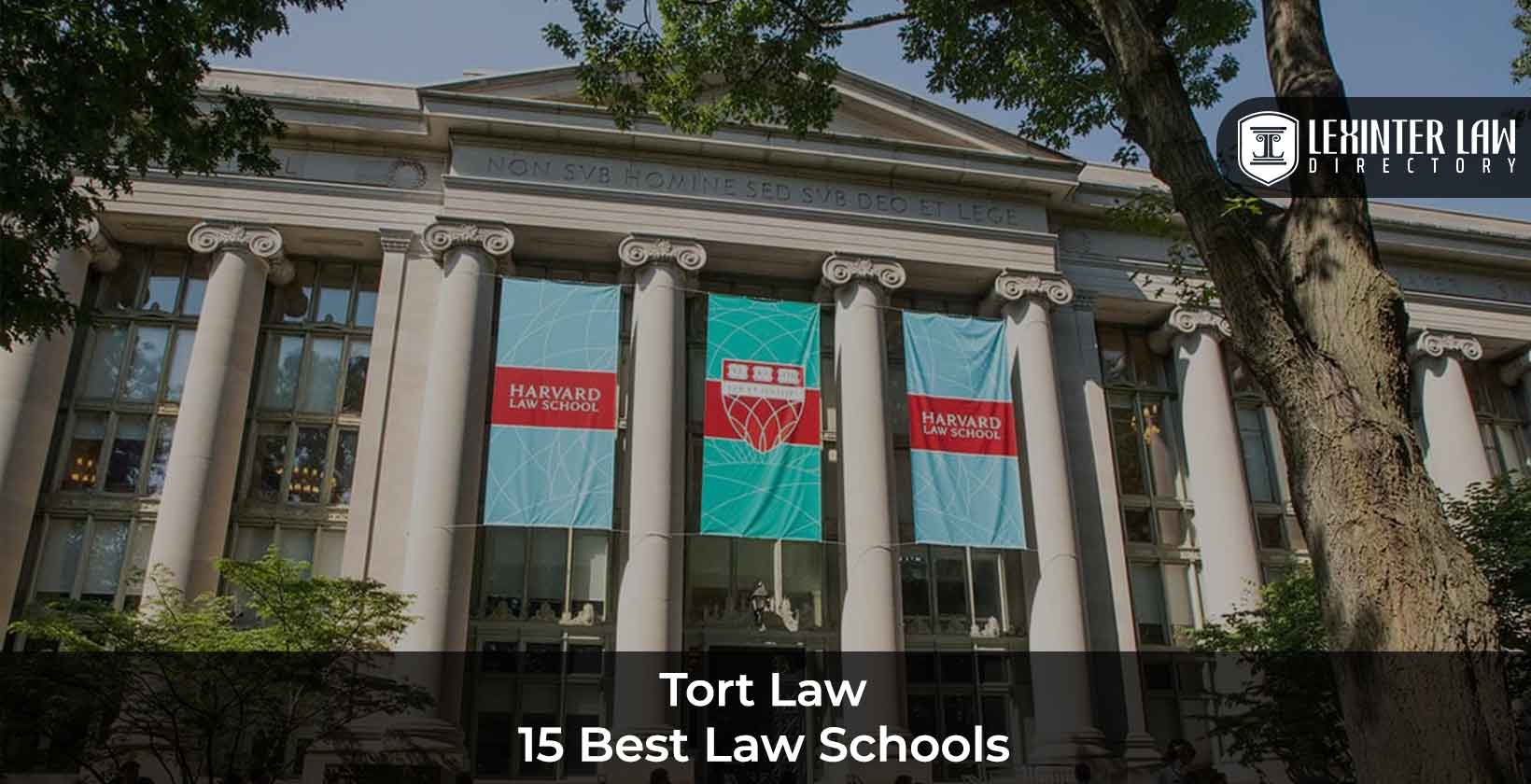15 Best Law Schools For Tort Law
The 15 best tort law schools offer comprehensive programs that prepare students for careers in civil litigation. Schools such as Harvard, Yale, the University of Chicago, and the University of Pennsylvania emphasize practical experience, theoretical knowledge, and interdisciplinary approaches to understanding tort law. Renowned faculty members and extensive resources allow students to explore specialized areas, such as personal injury, product liability, and medical malpractice. Several tort law programs include clinics and moot court competitions, providing hands-on opportunities for students to apply their knowledge in real-world settings.
Tort law schools offer various specialized courses covering key areas, including negligence, liability, and damages. The top programs provide students with the skills and knowledge required to navigate complex tort cases, from individual personal injury claims to large-scale class actions. Tort law degree holders pursue careers in personal injury law, corporate liability, or public policy, making the best tort law schools essential for individuals looking to excel in the fields. Graduates from top tort law programs find themselves well-positioned for roles in leading law firms, government agencies, or non-profit organizations.
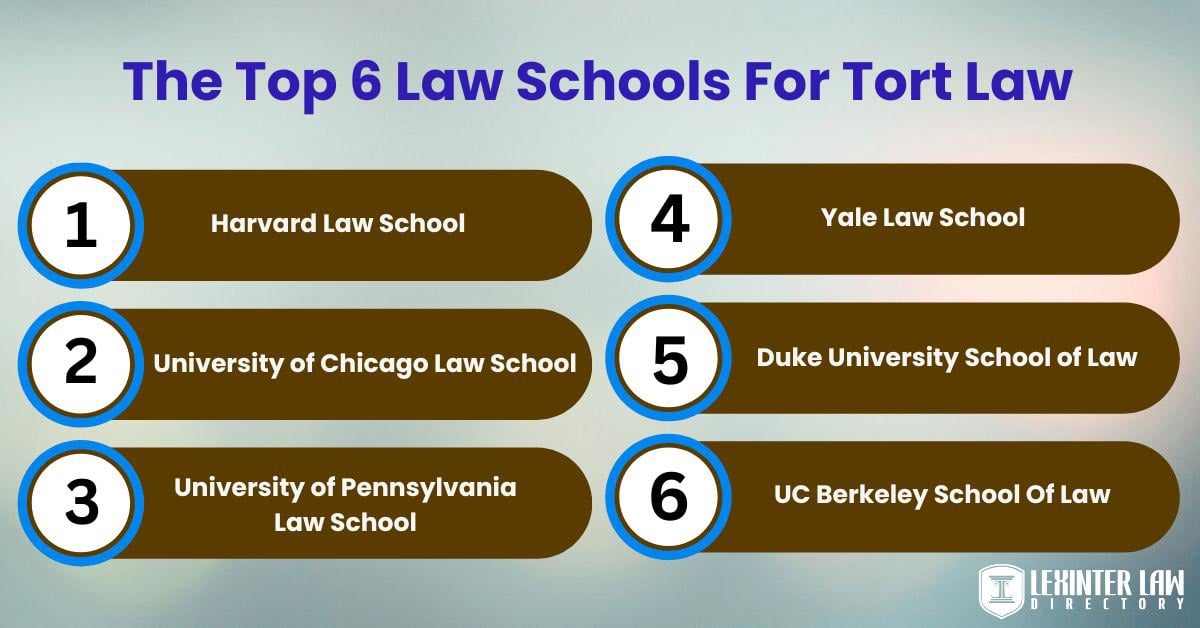
The top 6 law schools for tort law are listed below.
- Harvard Law School: Harvard Law offers a robust tort law program with renowned faculty and comprehensive course offerings. Students engage in tort-related clinics, preparing for careers in civil litigation. The school’s resources foster a deep understanding of tort law, including personal injury and liability cases. Harvard’s acceptance rate is 9.5%, making admission highly competitive.
- University of Chicago Law School: The University of Chicago emphasizes theoretical and practical training in tort law. Advanced courses on negligence, liability, and damages offer in-depth learning opportunities. The school’s faculty expertise and focus on law and economics create a strong foundation for tort litigation. The acceptance rate is 12.8%, reflecting selectivity in admissions.
- University of Pennsylvania Law School: Penn Law provides specialized tort law courses focusing on personal injury, malpractice, and product liability. The interdisciplinary approach enhances practical understanding, integrating law with business applications. Faculty members with expertise in torts provide detailed case studies. Penn Law’s acceptance rate is 9.9%, making it competitive.
- Yale Law School: Yale Law School excels in tort law through its analytical curriculum and legal theory focus. Clinics allow students to gain practical tort litigation experience, representing clients in real cases. Yale’s renowned faculty ensures top-tier instruction. Yale’s acceptance rate is 5.58%, making it the most selective law school in the United States.
- Duke University School of Law: Duke Law offers comprehensive tort law courses covering liability, damages, and public policy. Legal writing programs and moot court competitions provide practical litigation experience. The faculty’s interdisciplinary expertise connects tort law with health and environmental fields. Duke’s acceptance rate is 10.5%, making it selective yet accessible.
- UC Berkeley School Of Law: Berkeley Law provides a strong tort law program with hands-on clinics and litigation opportunities. Courses cover negligence, product liability, and mass torts, preparing students for varied legal careers. Faculty members are experts in tort law, ensuring high-quality instruction. Berkeley’s acceptance rate is 14.9%, reflecting a competitive admissions process.
Table of Contents
- 1. Harvard Law School
- 2. University Of Chicago Law School
- 3. University Of Pennsylvania Law School
- 4. Yale Law School
- 5. Duke University School Of Law
- 6. UC Berkeley School Of Law
- 7. University Of Virginia School Of Law
- 8. Northwestern Pritzker School Of Law
- 9. Columbia Law School
- 10. New York University Law School
- 11. Cornell Law School
- 12. Georgetown University Law Center
- 13. Stanford Law School
- 14. University Of Michigan Law School
- 15. Vanderbilt University Law School
- How To Choose The Best Tort Law School?
- What Is The Best Major For Tort Law?
1. Harvard Law School
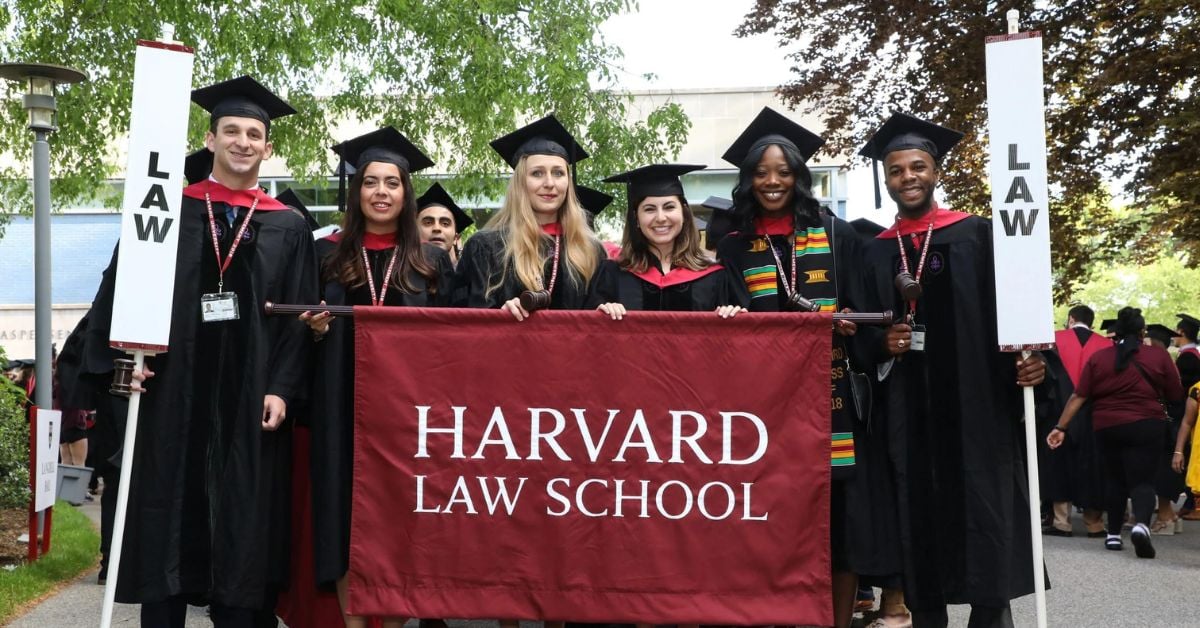
Harvard Law School, founded in 1817, is the oldest and most prestigious law school in the United States. The institution is part of Harvard University, an Ivy League school, and is recognized for its rigorous legal education. Harvard Law School’s alumni network includes U.S. Presidents, Supreme Court Justices, and global leaders. The school’s influence extends internationally, shaping legal education and practice across the world.
Harvard Law School offers various degree programs, including the Juris Doctor (J.D.), Master of Laws (LL.M.), and Doctor of Juridical Science (S.J.D.). The flagship J.D. program provides over 500 courses in areas like intellectual property, human rights, and tort law. The LL.M. caters to international lawyers, and the S.J.D. is designed for scholars aiming to contribute to legal academia.
Harvard Law School has an acceptance rate of approximately 9.5%. The competitive admissions process requires exceptional academic credentials, such as a median LSAT score of 174 and a median GPA of 3.93. Harvard Law School attracts applicants worldwide, ensuring that admitted students represent diverse backgrounds and legal interests, contributing to a dynamic learning environment. Annual tuition for Harvard Law School’s J.D. program is approximately $78,692, excluding additional living and miscellaneous expenses. Total costs, including living expenses, exceed $100,000 annually. Financial aid opportunities are available, and around 40% of Harvard Law School students receive assistance through scholarships, grants, or loan programs, making education accessible to a broader demographic.
Harvard Law School ranks No. 4 in the 2024 U.S. News & World Report’s Best Law Schools rankings. The school’s specialized programs include being ranked No. 1 in Constitutional Law and No. 2 in Business Law. The global alumni network and Harvard’s historical legacy continue to contribute to its prestigious reputation. Harvard Law School remains an influential institution that produces leaders in law and government. Harvard Law School offers comprehensive opportunities for students interested in tort law through its extensive curriculum and clinics. Tort law is covered in courses on civil litigation, personal injury law, and professional liability. Specialized programs such as the Program on Negotiation focus on dispute resolution and mediation, while the Cyberlaw Clinic explores liability in the digital age. Harvard’s Transactional Law Clinics provide real-world legal experience, allowing students to apply tort law principles to practical cases.
Harvard Law School’s faculty includes leading experts in tort law, contributing significantly to academic and legal practice. John C.P. Goldberg, a prominent figure in tort theory, has co-authored essential texts on tort law. Jon Hanson analyzes tort law through behavioral law and economics. Steven M. Shavell integrates economics and tort law, exploring how liability influences behavior, making Harvard’s faculty uniquely qualified to teach tort law. Harvard Law School offers numerous clinical opportunities for students to gain practical experience in tort law. Externship and in-house clinics provide hands-on exposure to personal injury and professional liability cases. Harvard’s Office of Clinical and Pro Bono Programs facilitates placements, allowing students to work on real-world cases. The experiences meet the school’s 50-hour pro bono requirement, enhancing student learning through active involvement in tort law practice.
Harvard Law School has a vast alumni network, many of whom have excelled in tort law. Richard Posner, a leading law and economics scholar, has written extensively on tort law. David Rosenberg is another influential alumnus known for his work in complex litigation and tort law. Harvard’s alumni network in tort law ensures students have access to mentors and professional opportunities throughout their careers. Harvard Law School provides a comprehensive range of courses in tort law, from introductory to advanced levels. The foundational torts course covers negligence, strict liability, and intentional torts. Advanced seminars explore tort theory and its applications in modern contexts, such as complex litigation and public health. Harvard’s extensive course offerings ensure that students understand the theoretical and practical aspects of tort law. Harvard Law School graduates specializing in tort law secure high-level positions in the public and private sectors. The percentage of 96.3% of graduates obtained long-term employment within 10 months of graduation. 60% of graduates join law firms, handling tort-related cases, including personal injury and malpractice. Several pursue careers in government or public interest law. Harvard’s global reputation and alumni network significantly enhance employment prospects for tort law specialists.
2. University Of Chicago Law School
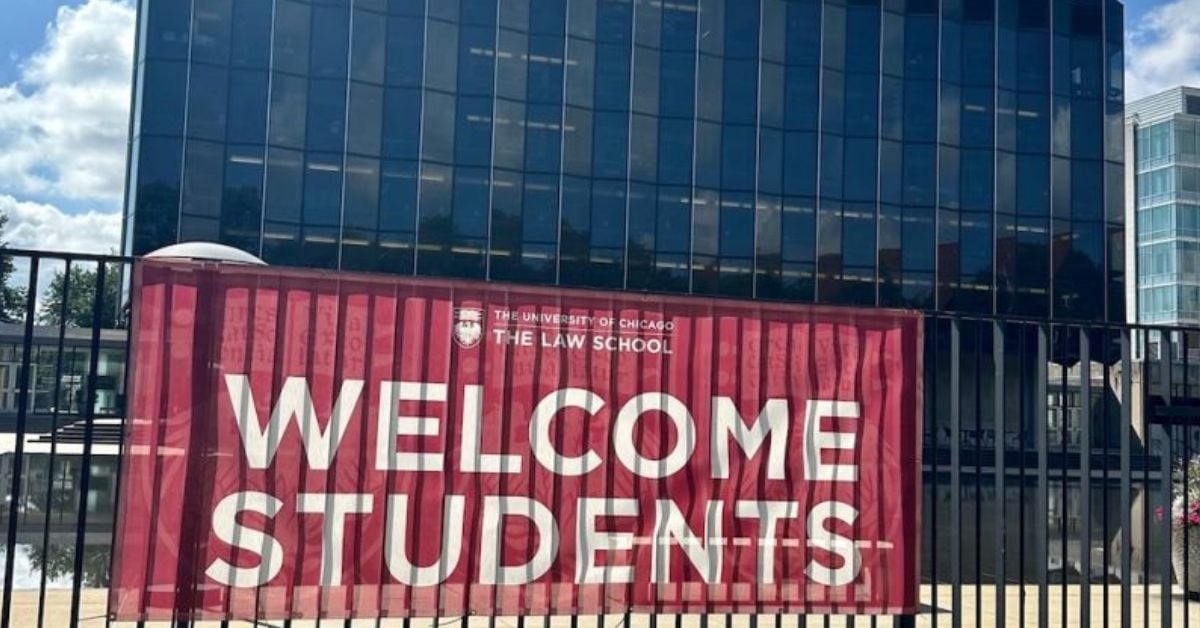
The University of Chicago Law School, founded in 1902, is known for its interdisciplinary approach to legal education. The law school integrates fields like economics and political science, making it a leader in the “Law and Economics” movement. The institution has a global reputation for academic excellence and is located in Chicago, Illinois. The University of Chicago Law School offers a range of degree programs, including the Juris Doctor (J.D.), Master of Laws (LL.M.), and Jurisprudence and Social Policy (J.S.D.). The J.D. program is full-time and immersive, while the LL.M. attracts international students from various legal backgrounds. The law school offers joint-degree programs, such as the JD/MBA, in collaboration with the Booth School of Business.
The University of Chicago Law School has an acceptance rate of approximately 12.8%, making it highly selective. Successful applicants present a median LSAT score of 173 and a GPA of 3.94. The competitive nature of admissions reflects the institution’s high academic standards. Applicants come from diverse backgrounds, ensuring a dynamic and intellectually stimulating environment for legal education. Tuition and fees for the 2024 academic year at the University of Chicago Law School amount to approximately $77,877. The total cost of attendance, including living expenses, exceeds $110,000 annually. Financial aid is available to students, with over 83% receiving grants averaging $15,000.
The University of Chicago Law School is consistently ranked among the top law schools in the United States, currently positioned at #3 by U.S. News & World Report. The school boasts a high Bar passage rate of around 97%, and graduates secure full-time employment within ten months of graduation. The law school’s rigorous academic standards and influential alumni network contribute to its esteemed reputation. The University of Chicago Law School does not offer a distinct program exclusively in tort law but integrates tort law into its broader curriculum. Students engage with tort law through courses and seminars, particularly in civil litigation, liability, and professional responsibility. Clinical opportunities and academic research further allow students to explore tort law in real-world contexts, contributing to their overall legal education.
The University of Chicago Law School boasts distinguished faculty members in tort law, including Richard A. Epstein, Saul Levmore, and William M. Landes. Epstein is renowned for his contributions to law and economics, particularly in torts and strict liability. Levmore emphasizes economic analysis and regulatory impacts on tort law. Landes focuses on the intersection of economics and tort law, analyzing legal structures and their economic outcomes. The University of Chicago Law School provides practical experience through clinics such as the Employment Law Clinic, which covers tort-related cases. Students engage in pre-trial litigation, addressing issues like workplace discrimination, which involve tort law elements. The clinic allows students to gain hands-on experience with real-world tort law cases, including trial preparation and, occasionally, appellate work, under the supervision of seasoned practitioners.
The University of Chicago Law School has produced influential alumni in tort law, including Richard Posner and Cass Sunstein. Posner, a former federal judge, has significantly contributed to law and economics, particularly in tort law theory. Sunstein, a legal scholar, has written extensively on risk regulation and torts. The strong alumni network provides students and graduates with valuable professional connections and mentorship opportunities. The University of Chicago Law School offers a comprehensive tort law curriculum, starting with the foundational Torts course. First-year students study negligence, strict liability, and intentional torts. Advanced seminars, such as Products Liability and Economic Analysis of Torts, further explore tort law through an economic lens. The program’s interdisciplinary approach ensures students thoroughly understand the theoretical and practical aspects of tort law. University of Chicago Law School graduates specializing in tort law achieve strong employment outcomes, with 94.5% employed within ten months of graduation. Several secure positions in prestigious law firms, particularly in civil litigation, while others pursue academic or public interest law careers. The school’s focus on law and economics gives graduates a competitive edge in tort law-related legal fields, enhancing their professional prospects.
3. University Of Pennsylvania Law School
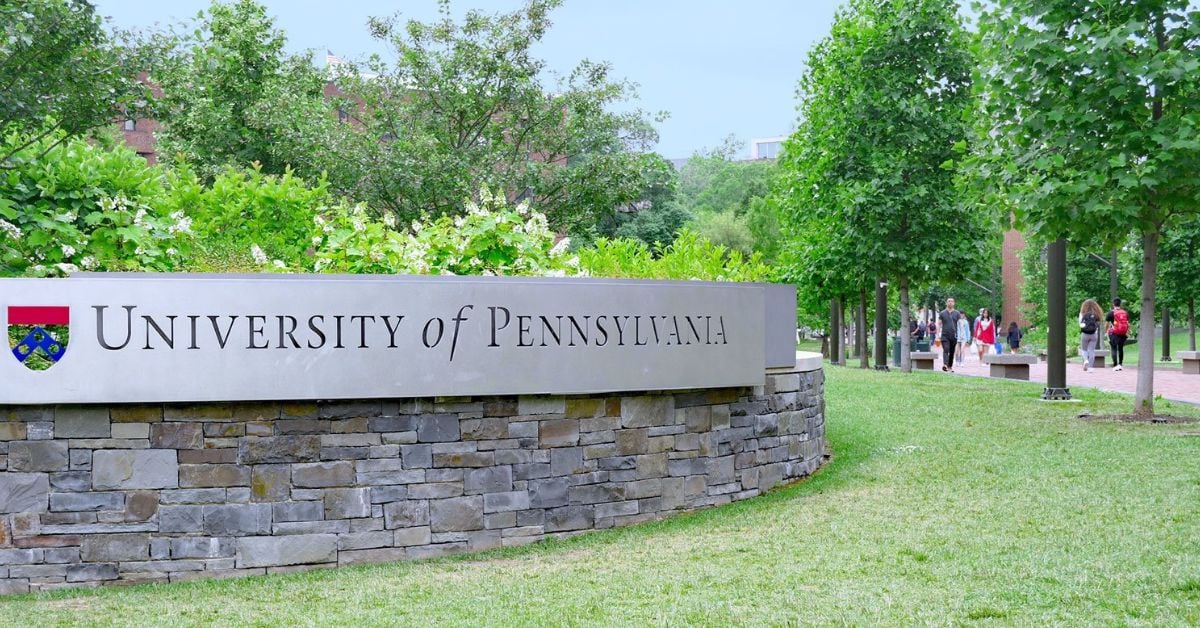
The University of Pennsylvania Carey Law School, founded in 1850, is part of the University of Pennsylvania, an Ivy League institution. Penn Carey Law is known for its interdisciplinary legal education and integration of law with business, public policy, and health. The law school is located in Philadelphia, Pennsylvania, and is globally recognized for academic excellence, producing graduates who excel in diverse areas of legal practice. Penn Carey Law offers a full-time Juris Doctor (J.D.) program, along with advanced degrees like the LL.M., S.J.D., and Master in Law (ML). The J.D. program emphasizes cross-disciplinary learning, allowing students to take courses across Penn’s other graduate schools. The law school offers extensive experiential learning through clinics, externships, and pro bono opportunities, ensuring students gain practical experience in legal practice.
The University of Pennsylvania Carey Law School is highly selective, with an acceptance rate of around 9.9%. Applicants have a median LSAT score of 172 and a median GPA of 3.92. The school attracts top candidates from around the world, contributing to a dynamic and intellectually stimulating academic environment. The competitive admissions process ensures that students are prepared for the rigorous academic programs. Annual tuition at the University of Pennsylvania Carey Law School for the 2023-2024 academic year is approximately $76,934. The total cost of attendance, including living expenses, exceeds $100,000 annually. Financial aid and scholarships are available, with many students receiving some form of financial assistance. Penn Carey Law is committed to making legal education accessible by supporting students through various financial aid programs.
The University of Pennsylvania Carey Law School is ranked No. 4 in the 2024 U.S. News & World Report rankings. The law school is highly regarded for its Business/Corporate Law, Contracts/Commercial Law, and Criminal Law programs. Top law firms, government agencies, and corporations are highly sought-after graduates. The school’s strong academic reputation and interdisciplinary approach make it a leader in legal education. Penn Carey Law offers students opportunities to specialize in tort law through elective courses and clinical programs. Courses such as Products Liability, Medical Malpractice, and Advanced Torts are part of the broader curriculum. The Civil Practice Clinic provides hands-on experience in tort-related cases, including personal injury and professional liability. The school’s comprehensive curriculum and experiential learning opportunities ensure students gain a deep understanding of tort law.
The University of Pennsylvania Carey Law School has distinguished faculty specializing in tort law, including Tom Baker, Catherine Struve, and Stephen Burbank. Tom Baker is renowned for his expertise in insurance law and its intersection with tort liability. Catherine Struve focuses on procedural law and tort-related constitutional litigation. Stephen Burbank has contributed significantly to understanding federal courts’ role in tort cases and procedural issues in tort law. Penn Carey Law offers robust clinical opportunities for students interested in tort law through its Civil Practice Clinic. Students handle tort cases involving personal injury, negligence, and professional liability, gaining hands-on experience in real-world litigation. The Supreme Court Clinic allows students to work on tort-related cases, providing them with unique opportunities to engage with high-level legal issues argued before the U.S. Supreme Court.
Penn Carey Law boasts a strong alumni network who have excelled in tort law and related legal fields. Notable alumni include Osagie Imasogie, who was recognized for his contributions to the intersection of tort and economic law, and Jeffrey Toobin, a prominent legal analyst. Sadie Tanner Mossell Alexander, a trailblazer in civil rights litigation, made significant contributions to tort-related issues throughout her career, reflecting the school’s diverse alumni impact. Penn Carey Law provides a variety of tort law courses, including Advanced Torts, Products Liability, and Medical Malpractice. The courses cover essential aspects such as negligence, strict liability, and personal injury law. Penn Carey Law’s interdisciplinary approach allows students to explore tort law from various perspectives, deepening their understanding of the broader legal and societal implications of tort liability and litigation. Graduates from Penn Carey Law specializing in tort law enjoy excellent employment prospects, with 93.9% securing positions within ten months of graduation. Several graduates join top law firms, handling tort-related litigation, while others pursue public interest careers or judicial clerkships involving tort law. Graduates entering the private sector start with salaries of around $190,000, reflecting the high demand for Penn Carey Law’s tort law expertise.
4. Yale Law School
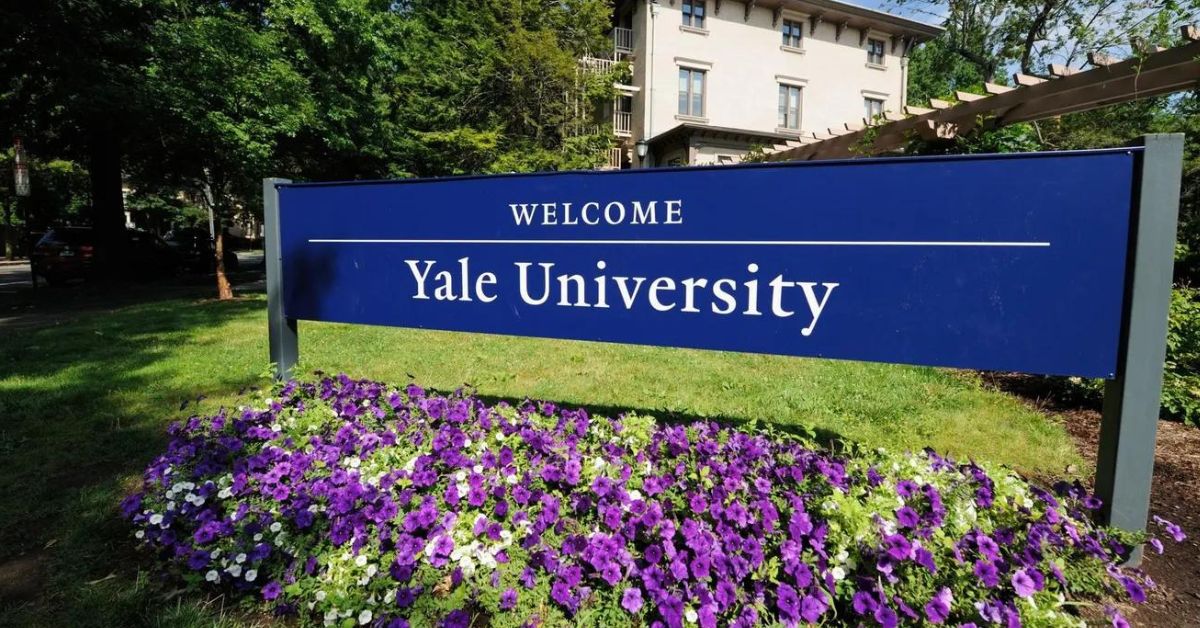
Yale Law School, founded in 1824, is part of Yale University, located in New Haven, Connecticut. Yale Law consistently ranks as the top law school in the U.S. and is recognized as one of the most prestigious law schools in the world. The school emphasizes small class sizes, a low student-to-faculty ratio, and producing influential legal scholars and thought leaders across various legal fields. Yale Law School offers a variety of degree programs, including the Juris Doctor (J.D.), Master of Laws (LL.M.), Doctor of the Science of Law (J.S.D.), and Master of Studies in Law (M.S.L.). The J.D. program is highly flexible, with minimal required courses, allowing students to customize their legal education. Yale Law offers joint-degree programs in collaboration with Yale’s other graduate schools, including public policy, business, and international relations.
Yale Law School has the lowest acceptance rate of any law school in the U.S., with only 5.58% of applicants admitted. The median LSAT score for admitted students is 175, and the median GPA is 3.96. The highly competitive admissions process attracts top candidates from across the globe, ensuring a diverse and intellectually rigorous environment for legal education. Annual tuition at Yale Law School for the 2023-2024 academic year is approximately $76,369. The total cost of attendance is significantly higher, including living expenses and other fees. Yale Law School offers generous financial aid packages, with grants covering around 43% of tuition and fees. 63% of students receive grants or scholarships, enhancing the accessibility of law school for individuals from diverse financial backgrounds.
Yale Law School is consistently ranked as the #1 law school in the United States by U.S. News & World Report. The law school ranks fourth in the QS World University Rankings for Law and Legal Studies. Yale ranks #8 in Business/Corporate Law and #5 in Clinical Training. The law school’s prestigious reputation is bolstered by its influential faculty, rigorous academic programs, and high-profile alumni, many of whom secure Supreme Court clerkships or leadership positions in law, government, and academia. Yale Law School does not have a specialized program exclusively in tort law, but tort law is integrated into its core curriculum. Foundational courses cover topics like negligence, liability, and personal injury law. Advanced seminars explore tort-related issues in greater depth. Yale’s clinical programs, particularly in civil litigation, provide students with hands-on experience working on tort-related cases, significantly enhancing their understanding of tort law.
Yale Law School has prominent faculty specializing in tort law, including Douglas Kysar, John Goldberg, and Stephen Perry. Douglas Kysar is a leading authority on tort law, with a focus on environmental law and risk regulation. John Goldberg contributed extensively to civil recourse theory, which views tort law as a means for seeking justice. Stephen Perry explores the moral foundations of tort liability through his work on corrective justice. Yale Law School offers various clinical opportunities for students to engage in tort-related cases. The Civil Litigation Clinic allows students to handle cases involving negligence and personal injury. Yale’s unique clinical program permits first-year students to represent live clients, offering early exposure to real-world legal work. Students gain practical skills by working directly on tort law cases under the guidance of experienced practitioners.
Yale Law School’s alumni network includes figures who have significantly impacted tort law, including Guido Calabresi, a pioneer in law and economics. Ben Stein, an influential legal commentator and alumnus, has contributed to discussions on tort-related issues. Elizabeth Wurtzel, another alumna, practiced law with a focus on civil litigation and torts before her literary career. Yale’s alumni connections enhance networking opportunities for current students. Yale Law School offers a comprehensive range of tort law courses, providing students with foundational and specialized knowledge. The first-year Torts course covers negligence, strict liability, and intentional torts. Product liability explores doctrines concerning defective products, a critical aspect of tort law. Advanced Torts focuses on complex litigation scenarios, while Environmental Torts addresses legal responses to environmental harm and regulatory challenges. Yale Law School graduates specializing in tort law have excellent employment prospects, with 85.9% employed within ten months of graduation. Several graduates secure positions in top law firms, handling civil litigation or policy work involving tort law. Yale alumni clerk for federal judges or pursue roles in academia, where prestigious employers highly value their expertise in tort law and related fields.
5. Duke University School Of Law
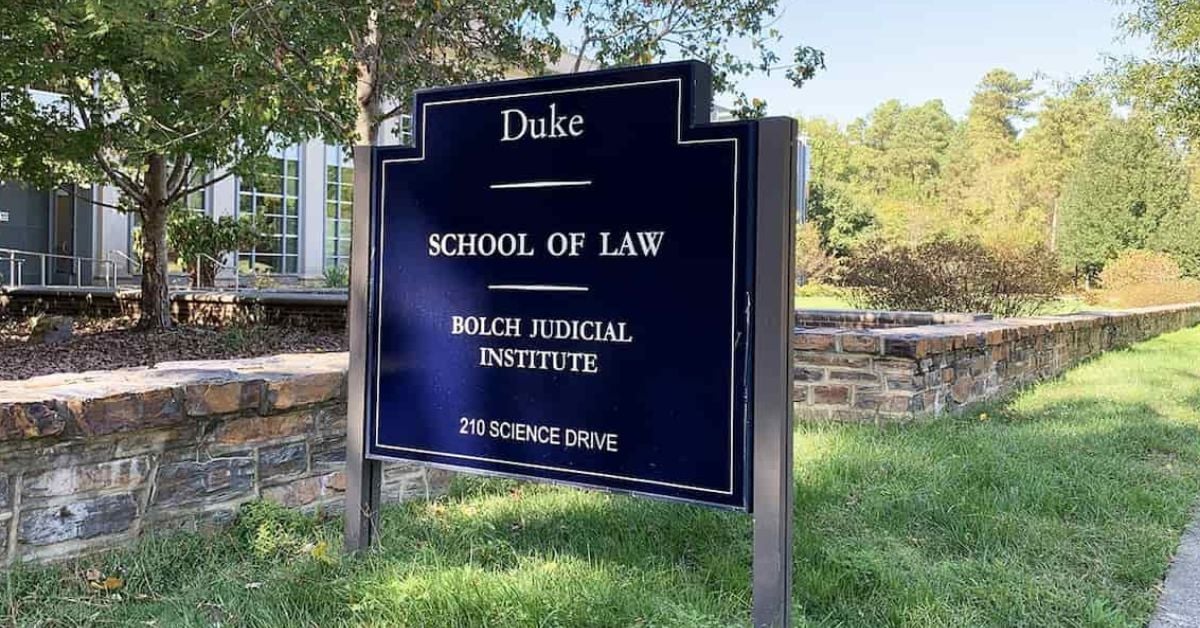
Duke University School of Law, founded in 1930, is renowned for its interdisciplinary legal education. The law school is located in Durham, North Carolina, and emphasizes a blend of traditional and practical legal training. Duke Law is known for offering students opportunities to explore diverse fields, including law, business, public policy, and international law, providing a well-rounded academic experience for aspiring legal professionals. Duke Law’s Juris Doctor (J.D.) program delivers a comprehensive foundation in law, covering essential first-year subjects like torts, civil procedure, and constitutional law. Students pursue dual-degree programs, such as a JD/LLM in International Law or a JD/MBA, allowing for interdisciplinary learning. Upper-level courses, clinical programs, and externships offer students practical legal experience, ensuring they are prepared for diverse legal careers.
Duke University School of Law is highly selective, with an acceptance rate of 10.5%. Admitted students have a median LSAT score of 170 and a median GPA of 3.87. The competitive nature of the admissions process ensures that Duke Law attracts top students, contributing to the school’s dynamic and intellectually rigorous environment. Students come from diverse academic and professional backgrounds. Annual tuition for the 2024-2025 academic year at Duke Law is approximately $77,100. The total cost of attendance is estimated at around $109,398, including living expenses and other costs. Financial aid is available, and many students receive tuition discounts or scholarships. Duke Law is committed to helping students afford a legal education, offering support through need-based grants and merit-based scholarships.
Duke University School of Law ranks fourth in the 2024 U.S. News & World Report law school rankings. The school is well-regarded for its strong programs in constitutional law, business law, and international law. Duke Law’s reputation is bolstered by its distinguished faculty, impressive employment outcomes, and alumni who have made significant contributions to law, business, and public service nationally and internationally. Duke Law incorporates tort law into the core first-year curriculum, offering students foundational knowledge in negligence and liability. Advanced courses like product liability and Health Law allow for a deeper exploration of tort law. Clinical programs related to civil litigation provide students with hands-on experience in tort-related cases, ensuring they gain practical legal skills in dealing with tort law issues during their education.
Duke University School of Law has distinguished faculty members specializing in tort law, including Donald H. Beskind, Chris Buccafusco, and Doriane Coleman. Donald H. Beskind focuses on personal injury law and negligence in his foundational torts courses. Chris Buccafusco explores intersections between innovation, intellectual property, and tort law. Doriane Coleman emphasizes liability and public health protection in her work on health law and tort law. Duke Law offers several clinical opportunities for students to gain practical experience in tort law. The Civil Justice Clinic allows students to work on cases involving personal injury, negligence, and public benefits disputes. The Mass Tort MDL Certificate Course, part of the Bolch Judicial Institute, provides in-depth exposure to multidistrict litigation, a significant area in tort law. The programs give students hands-on experience with real-world tort cases.
Duke Law’s alumni network includes leaders in tort law, such as Francis McGovern, a pioneer in mass tort and multidistrict litigation. David F. Levi, the former dean, has contributed significantly to mass tort law through judicial education programs. Elizabeth Cabraser, a prominent litigator, has been involved in high-profile tort cases, particularly in multidistrict litigation. Duke’s alumni network helps students connect with professionals in top tort law positions. Duke Law’s core Torts course, part of the first-year curriculum, covers essential topics like negligence, strict liability, and product liability. Specialized courses, including product liability and advanced seminars on multidistrict litigation, allow students to explore tort law more deeply. The offerings provide a comprehensive understanding of tort law, preparing students for careers in litigation, mass torts, or regulatory fields. Duke Law graduates specializing in tort law enjoy excellent employment prospects, with 98.1% securing positions within ten months of graduation. Graduates find roles in top law firms, government agencies, and nonprofit organizations, handling tort-related cases. Duke’s strong clinical programs and extensive alumni network contribute to robust employment outcomes for students pursuing careers in tort law and civil justice.
6. UC Berkeley School Of Law
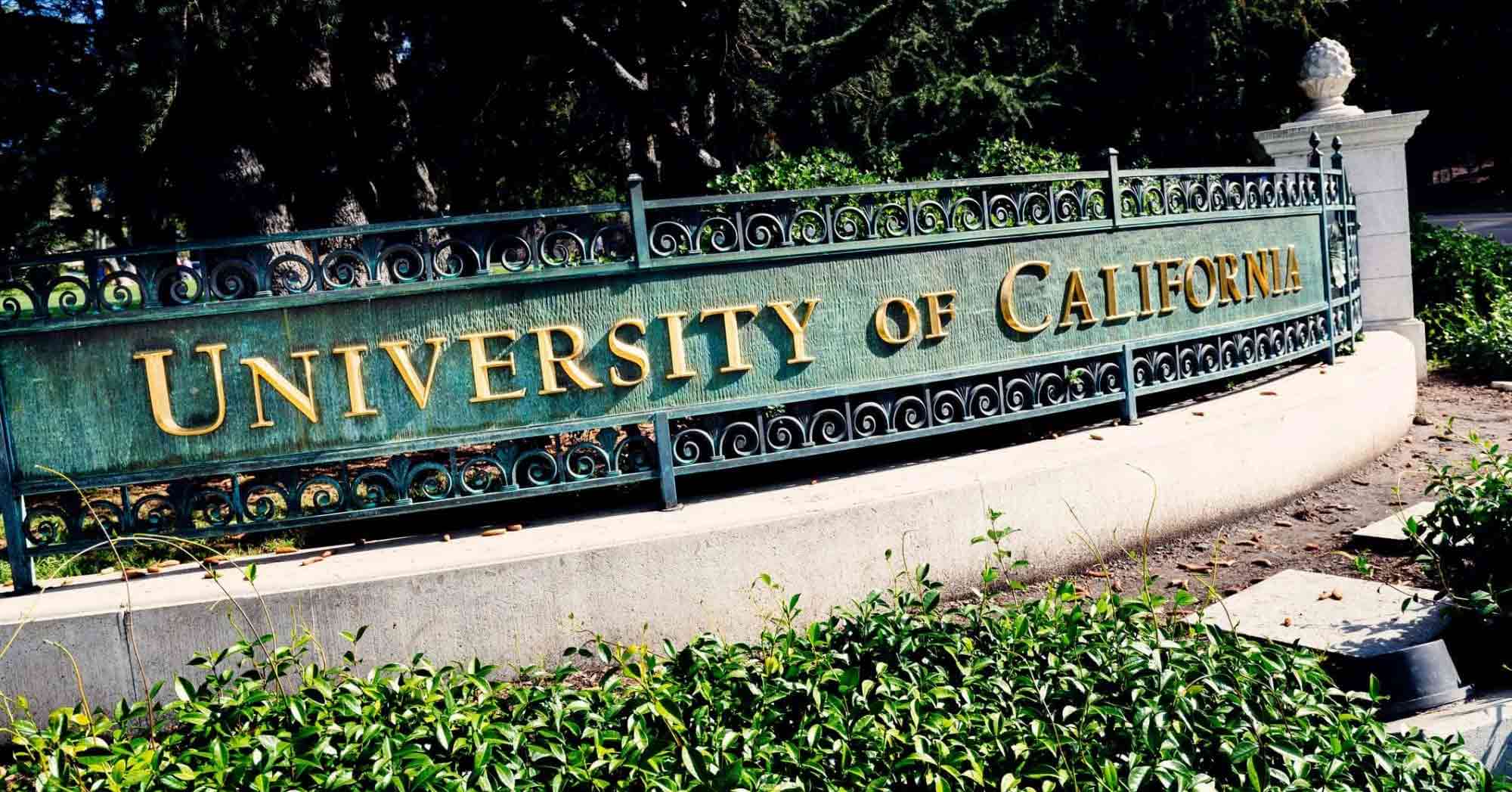
The University of California, Berkeley School of Law, established in 1894, is one of the top public law schools in the United States. The school is located in Berkeley, California, and is recognized for its innovative and progressive legal education. Berkeley Law is known for its strong focus on public interest, social justice, and intellectual property law, attracting students seeking to impact the areas. Berkeley Law offers a variety of degree programs, including the Juris Doctor (J.D.), Master of Laws (LL.M.), Doctor of Juridical Science (J.S.D.), and Ph.D. in Jurisprudence and Social Policy (JSP). Students pursue dual degrees through collaborations with other departments or external institutions. Berkeley Law emphasizes interdisciplinary learning, allowing students to combine legal studies with other fields, such as business or public policy.
Berkeley Law is highly selective, with an acceptance rate of approximately 14.9%. The median LSAT score for admitted students is 170, and the median GPA is 3.87. The competitive admissions process attracts a diverse and intellectually gifted student body. Students admitted to Berkeley Law are expected to meet high academic standards, contributing to the school’s reputation for academic excellence. Tuition at Berkeley Law for the 2023-2024 academic year is $62,603 for California residents and $74,995 for non-residents. The total cost of attendance, including living expenses, ranges from $105,556 to $117,984, depending on residency status. Financial aid options are available to help students manage the high costs of legal education.
Berkeley Law is consistently ranked among the top 10 law schools in the United States, currently holding the 9th position according to U.S. News & World Report. The law school’s intellectual property program is ranked No. 1, and its environmental law program is ranked No. 3. Berkeley Law’s reputation for academic excellence and strong employment outcomes makes it a highly respected institution in legal education. Tort law is an integral part of Berkeley Law’s first-year curriculum, where students study core topics such as negligence and strict liability. Advanced courses, including Products Liability and Medical Malpractice, allow students to explore tort law in greater depth. Berkeley Law does not offer a dedicated tort law program, but students gain significant exposure to tort-related legal issues through various courses and practical experiences.
The University of California, Berkeley School of Law has notable faculty specializing in tort law, including Chris Hoofnagle, Kenneth Bamberger, and Robert Cooter. Chris Hoofnagle focuses on negligence, liability, and the interaction between tort law and modern challenges like privacy. Kenneth Bamberger explores legal governance and regulatory frameworks, incorporating aspects of tort law. Robert Cooter emphasizes the economic analysis of tort law, analyzing how legal frameworks shape incentives. Berkeley Law provides several clinical opportunities for students to gain practical experience in tort law cases. The East Bay Community Law Center allows students to handle civil cases involving personal injury and negligence. The Civil Justice Clinic offers students hands-on experience with tort litigation, focusing on cases involving property damage and personal injury. The clinics help students develop practical skills in real-world tort-related scenarios.
The University of California, Berkeley School of Law has produced many influential alumni in tort law and related fields. Notable alumni include Robert Reich, a former U.S. Secretary of Labor, who contributed to public policy discussions involving tort law. Edwin Meese III, former U.S. Attorney General, addressed tort reform during his career. Elizabeth Cabraser is a prominent figure in mass tort litigation, known for her work in class-action lawsuits involving defective products. Berkeley Law’s core Torts course, part of the first-year curriculum, covers essential topics like negligence and strict liability. Specialized courses, such as Products Liability and Medical Malpractice, allow students to explore more advanced tort law issues. The courses focus on various types of liability, risk, and compensation, providing students with a deep understanding of tort litigation and its real-world applications. Berkeley Law graduates specializing in tort law enjoy strong employment outcomes, with 89.4% securing positions within ten months of graduation. Several graduates pursue careers in civil litigation, personal injury law, or public interest work. Berkeley Law’s strong alumni network and clinical opportunities contribute to the successful placement of students in private practice and public service roles involving tort law litigation.
7. University Of Virginia School Of Law
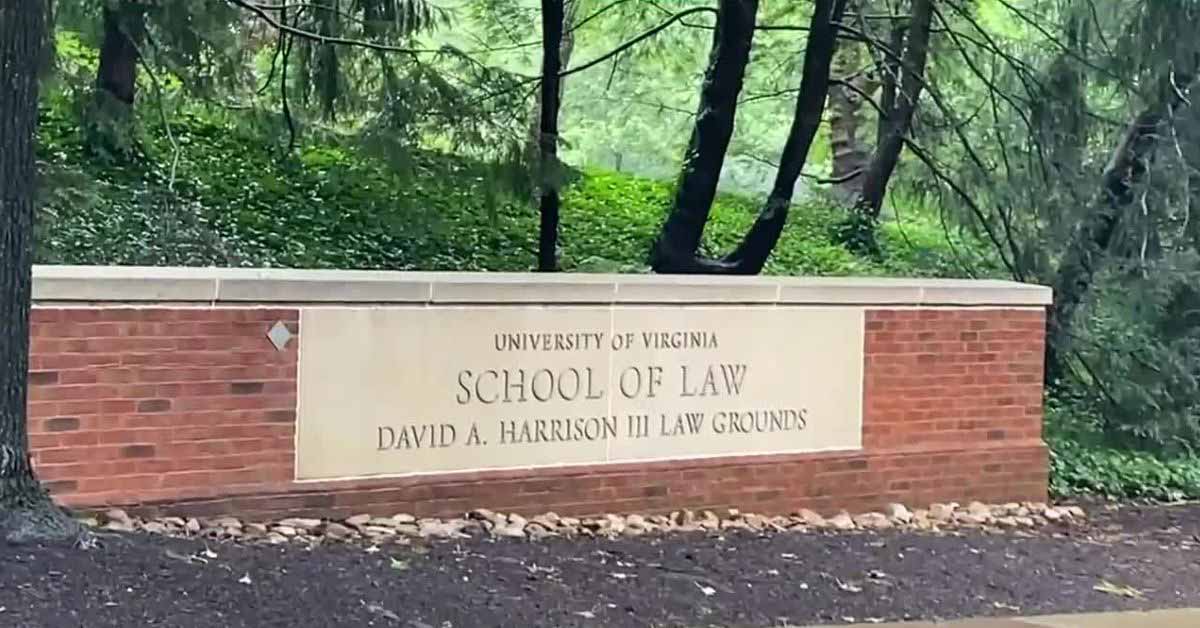
The University of Virginia School of Law, founded by Thomas Jefferson in 1819, is one of the oldest law schools in the United States. UVA Law is known for its strong academic tradition and beautiful campus located in Charlottesville, Virginia. The school emphasizes leadership in legal education and fosters a sense of community among students, faculty, and alumni, making it a top choice for aspiring legal professionals. UVA Law offers a Juris Doctor (J.D.) program and advanced degrees like the LL.M. and S.J.D. Students pursue dual-degree programs, including J.D./M.B.A. and J.D./M.P.P., which combine legal education with other disciplines. UVA Law provides over 250 courses and 23 clinics, allowing students to gain practical legal experience in various fields. The curriculum emphasizes academic rigor and hands-on learning.
The University of Virginia School of Law has an acceptance rate of approximately 11%, making admissions highly competitive. The median LSAT score for admitted students is 172, and the median GPA is 3.96. The metrics reflect the academic strength of UVA Law’s incoming classes. The admissions process attracts top candidates, ensuring a dynamic and intellectually stimulating environment for legal education. Tuition at UVA Law for the 2024 academic year is approximately $74,700 for Virginia residents and $77,700 for non-residents. The total cost of attendance, including living expenses, exceeds $100,000 annually. UVA Law offers financial aid, with many students receiving grants and scholarships to help manage the high costs of legal education.
The University of Virginia School of Law consistently ranks among the top law schools in the United States, with U.S. News & World Report ranking it fourth in 2024. UVA Law boasts a high employment rate, with 96.3% of the Class of 2022 securing full-time, long-term JD-required positions. The school ranks as one of the best Virginia law schools, praised for its quality of life, faculty excellence, and campus environment. Tort law is a core part of the first-year curriculum at UVA Law, providing students with foundational knowledge in negligence and liability. Advanced courses like Products Liability and Medical Malpractice allow students to specialize further in tort law. The Civil Litigation Clinic offers hands-on experience with tort-related cases, helping students apply theoretical knowledge to real-world legal practice preparing them for litigation careers.
The University of Virginia School of Law features distinguished faculty specializing in tort law, including Leslie Kendrick, Kenneth S. Abraham, and Michael G. Collins. Leslie Kendrick is recognized for her work on civil liability and the intersection of tort law with free speech. Kenneth S. Abraham focuses on tort law and insurance law, exploring issues related to liability. Michael G. Collins emphasizes the historical foundations of tort law, particularly in causation and negligence. UVA Law provides several clinical opportunities for students to gain hands-on experience in tort law. The Civil Justice Clinic allows students to represent clients in cases involving personal injury, medical malpractice, and other tort claims. The Appellate Litigation Clinic covers some tort-related appeals, exposing students to complex appellate work. The clinical programs help students apply their theoretical knowledge to real-world legal challenges.
UVA Law’s alumni network includes prominent figures in tort law, offering valuable connections to students. John Cooper is a well-known personal injury lawyer specializing in motor vehicle accident cases. Avery T. Waterman, Jr. focuses on personal injury and wrongful death litigation. Michael Danko is a trial lawyer recognized for his work in mass tort and catastrophic injury litigation, reflecting the strength of UVA Law’s alumni in tort law. Tort law is a fundamental part of UVA Law’s curriculum, beginning with the first-year Torts course. The course covers essential areas like negligence, strict liability, and intentional torts. Advanced courses such as Products Liability and Medical Malpractice allow students to explore specialized aspects of tort law. The courses provide a comprehensive understanding of tort law, preparing students for careers in litigation and related fields. Graduates from UVA Law specializing in tort law enjoy excellent employment prospects, with 97.2% securing full-time, long-term jobs requiring Bar passage. Several graduates join prestigious law firms, handling litigation, including personal injury and tort-related cases. UVA Law’s strong alumni network and career services contribute significantly to high employment rates in the field, ensuring successful career outcomes for tort law specialists.
8. Northwestern Pritzker School Of Law
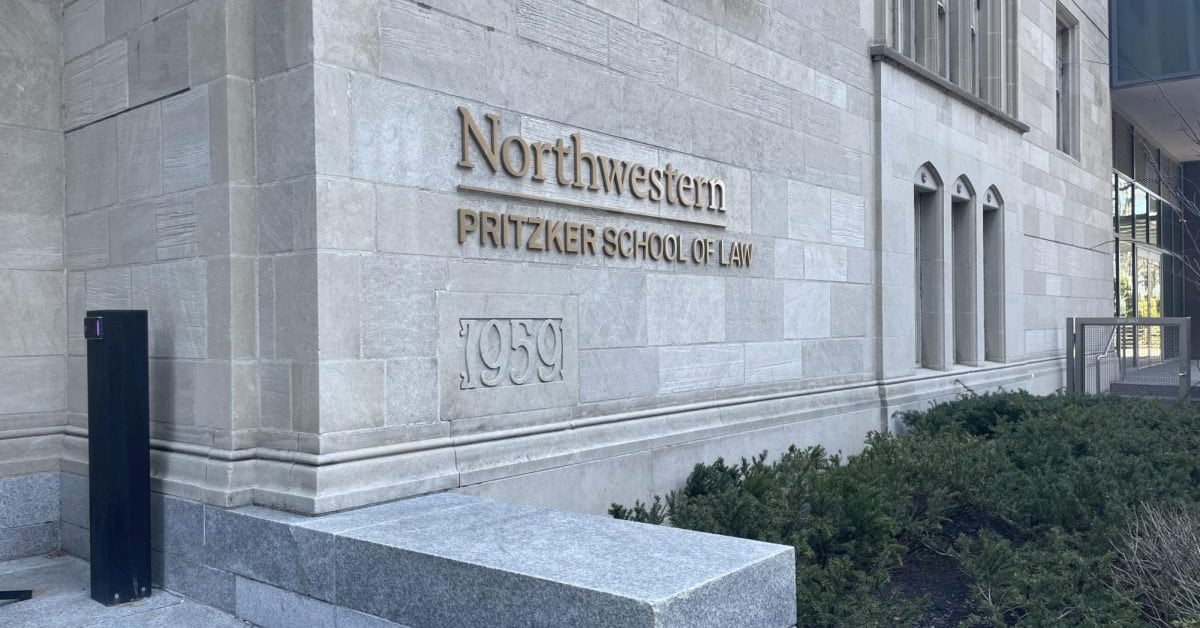
Northwestern Pritzker School of Law, founded in 1859, is the oldest law school in Chicago. Northwestern Law is recognized for its interdisciplinary approach to legal education located in the city’s vibrant downtown. The law school builds strong connections with the legal and business communities, emphasizing experiential learning. Northwestern is known for providing students with practical experiences to prepare them for real-world legal challenges. Northwestern Pritzker School of Law offers multiple degree programs, including the Juris Doctor (J.D.), Master of Laws (LL.M.), and Master of Science in Law (M.S.L.). The J.D. program provides a comprehensive curriculum covering core subjects such as torts, civil procedure, and contracts. Northwestern Law offers joint degree programs, including the highly regarded J.D./MBA in partnership with the Kellogg School of Management.
Northwestern Pritzker School of Law maintains a highly selective admissions process, with an acceptance rate of 15.5%. Admitted students have a median LSAT score of 172 and a median GPA of 3.92. Northwestern’s selectivity reflects its competitive nature among U.S. law schools, drawing applicants with strong academic records. Several incoming students are required to have prior professional work experience before applying. Tuition at Northwestern Pritzker School of Law is approximately $74,552 for the 2023-2024 academic year. The total annual cost of attendance exceeds $104,000, including living expenses and additional fees. Northwestern Law offers financial aid options, with approximately 69% of students receiving an average grant of $40,000. The high cost of attendance reflects the school’s prestigious education and urban location.
Northwestern Pritzker School of Law is ranked ninth among U.S. law schools, tied with other top institutions. The law school ranks #16 in Business/Corporate Law and is tied for fifth in Clinical Training. Northwestern’s graduates have an impressive placement rate in BigLaw firms, with 95.5% securing employment within ten months of graduation. The school’s practical legal education and extensive clinical programs contribute to its strong reputation and high rankings. Tort law is a fundamental part of the first-year curriculum at Northwestern Pritzker School of Law. Northwestern does not offer a standalone program for tort law, but students take advanced courses in related fields such as product liability and Medical Malpractice. The Bluhm Legal Clinic offers students hands-on experience in civil litigation, allowing for practical exposure to tort cases and related areas of law.
Northwestern Pritzker School of Law boasts a faculty with significant expertise in tort law. Adam Hoeflich specializes in tort law, class actions, and litigation, with a focus on legal ethics. James Speta brings expertise in tort and commercial law, as well as antitrust law. Michael Barsa offers additional specialization in tort law, examining its role in environmental law contexts giving students a diverse academic perspective. Northwestern Law provides extensive clinical opportunities through its Bluhm Legal Clinic, one of the nation’s largest. The Civil Litigation Center allows students to engage with real tort-related cases, including personal injury and professional negligence. Hands-on work allows students to gain practical experience in civil litigation, refining skills in case analysis, client representation, and tort claims, ensuring they are well-prepared for legal practice.
Northwestern Pritzker School of Law has a robust alumni network with notable figures in tort law. Steven Drizin, co-director of the Center on Wrongful Convictions, has been involved in numerous civil rights-related tort cases. Thomas Geraghty has directed the Bluhm Legal Clinic, handling significant tort law cases. Kristin Hickman has worked on tort claims linked to federal regulations, providing inspiration and networking opportunities for students. Northwestern Law offers a variety of courses related to tort law, providing a comprehensive curriculum. First-year students take the core Torts course, covering negligence and strict liability. Advanced offerings include product liability, which focuses on defective product claims, and medical malpractice, which explores negligence in healthcare. Complex Litigation covers mass torts and procedural issues, preparing students for careers in civil litigation. Graduates of Northwestern Pritzker School of Law have outstanding employment outcomes, particularly in tort litigation. The graduates secure full-time employment at a rate of 95.5% within 10 months of graduation. Northwestern’s strong alumni network and placement in BigLaw firms contribute to its success. Graduates find employment in public interest law, including tort and civil rights cases, and secure coveted judicial clerkships across the country.
9. Columbia Law School
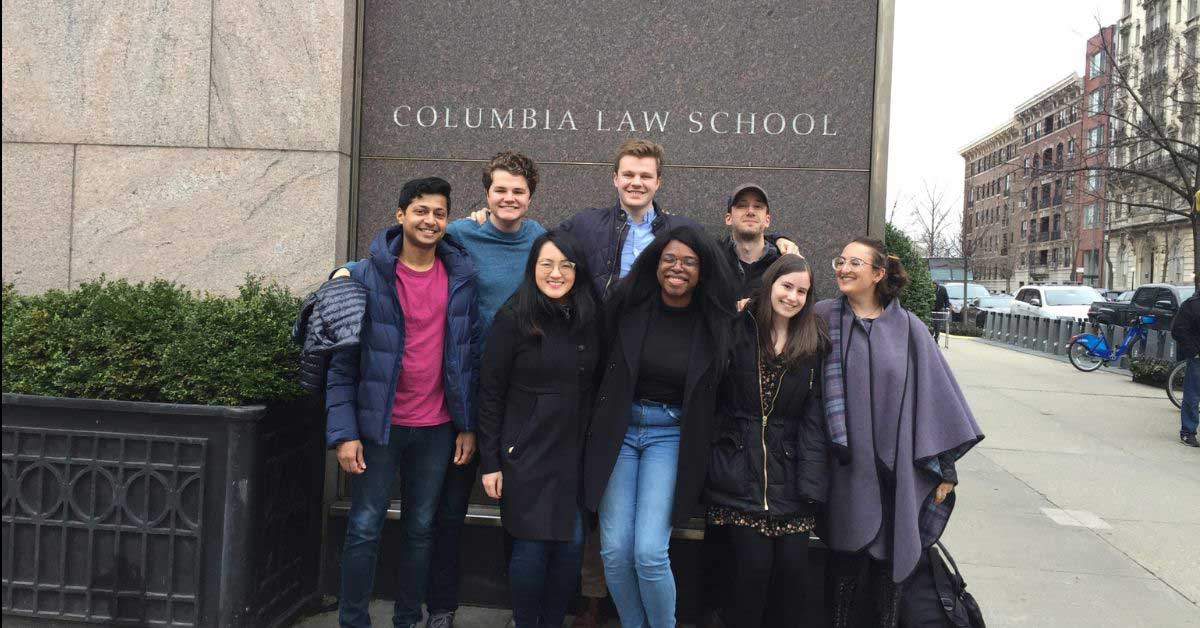
Columbia Law School, established in 1858, is one of the most prestigious U.S. law schools. Columbia is part of Columbia University, an Ivy League institution located in New York City. The law school is renowned for producing leaders across law, government, business, and academia. The rigorous academic environment helps students develop critical skills necessary for excelling in the legal profession and related fields. Columbia Law School offers a comprehensive Juris Doctor (J.D.) program, along with advanced degrees such as the Master of Laws (LL.M.) and Doctor of Juridical Science (J.S.D.). The J.D. program includes core subjects like torts, contracts, and constitutional law. Columbia provides dual-degree programs, such as the J.D./M.B.A., and partnerships with international law schools in cities like London, Paris, and Frankfurt.
Columbia Law School has an acceptance rate of approximately 12.23%. Students admitted to Columbia have a median LSAT score of 173 and a median GPA of 3.9. Columbia’s competitive admissions reflect the school’s commitment to attracting high-caliber candidates, positioning it among the most competitive law schools nationwide. Tuition at Columbia Law School for the 2024-2025 academic year is approximately $81,888. The total annual cost of attendance reaches $119,997, including living expenses. Columbia Law provides financial aid options to help mitigate costs, including the Loan Repayment Assistance Program (LRAP), which helps students manage the burden of student loans after graduation, particularly students entering public service careers.
Columbia Law School is ranked sixth in the United States by U.S. News & World Report and eighth globally by QS World Rankings. Columbia ranks second in Business/Corporate Law and fourth in International Law. The law school’s extensive alumni network and high placement in top law firms further elevate its prestige. The school’s focus on legal education excellence continues to contribute to its distinguished reputation. Columbia Law School does not offer a specific program dedicated solely to tort law, but torts are a central part of the first-year curriculum. The school offers advanced courses in areas such as Products Liability, Medical Malpractice, and Mass Torts. Columbia’s clinical programs provide practical experience where students engage in tort-related cases, gaining hands-on exposure to civil litigation and tort law applications.
Columbia Law School boasts several renowned faculty members specializing in tort law. Benjamin L. Liebman, Robert L. Lieff Professor of Law, focuses on mass tort litigation and comparative tort systems. Bert Huang, Harold R. Medina Professor, teaches torts and specializes in civil liability, negligence, and mass torts. Ashraf Ahmed, an associate professor, teaches tort law and explores compensatory and punitive damages, providing a broad understanding of civil liability. Columbia Law School offers practical experience in tort law through several clinical programs. The Civil Justice Clinic allows students to work on cases involving personal injury, negligence, and tort claims. The Environmental Law Clinic focuses on tort litigation arising from environmental disasters and mass torts. The clinics provide students with real-world experience, refining their skills in handling complex tort cases and civil litigation.
Columbia Law School’s alumni network includes many distinguished figures in tort law. Ruth Bader Ginsburg, a former Supreme Court Justice, was deeply involved in civil rights cases intersecting with tort law. Marvin E. Frankel, a federal judge, made significant contributions to modern tort law. Jack Greenberg, known for arguing landmark civil rights cases, influenced tort law, particularly in personal injury and negligence matters, offering students extensive networking opportunities. Columbia Law School provides a comprehensive selection of tort law courses. The foundational Torts course, required for first-year students, covers negligence, intentional torts, and liability. Advanced courses include Products Liability, which focuses on defective products, and Medical Malpractice, which addresses healthcare tort claims. Mass Torts explores large-scale tort litigation, including environmental disasters and class actions, ensuring students receive a broad understanding of tort law. Columbia Law School graduates have strong employment outcomes, with 96.8% securing employment within ten months of graduation. Several graduates enter top law firms, where tort litigation, including personal injury and mass tort, forms a substantial part of their practice. Columbia’s clinical programs and strong faculty connections provide students with direct pathways into tort law-related careers, enhancing their professional prospects.
10. New York University Law School
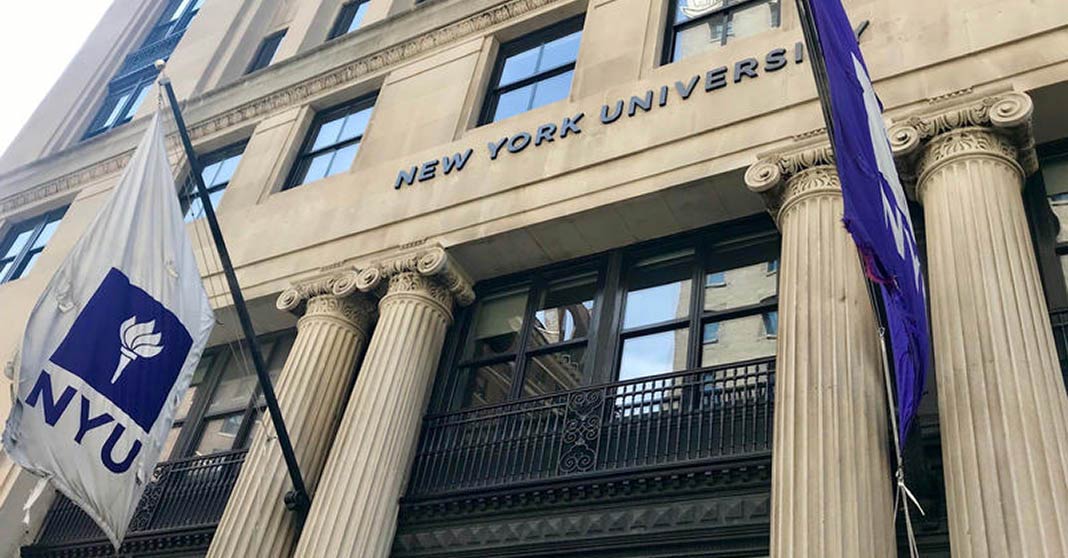
New York University School of Law (NYU Law), established in 1835, is the oldest law school in New York City. The law school is situated in Greenwich Village and is recognized for its innovative approach to legal education. NYU is a leader in public interest law and offers extensive academic programs. NYU Law offers degrees such as the Juris Doctor (J.D.), Master of Laws (LL.M.), and Doctor of Juridical Science (J.S.D.). The J.D. program is comprehensive, allowing students to specialize in various legal fields. Students participate in dual-degree programs like the J.D./MBA, and J.D./LL.M. NYU Law’s clinical program is among the largest in the U.S., providing students with experiential legal learning.
NYU Law has an acceptance rate of 16.76% for the 2023-2024 academic year. The median LSAT score of admitted students is 172, while the median GPA is 3.90. The figures place NYU Law among the most competitive law schools in the nation, attracting high-achieving students seeking rigorous legal education and professional development opportunities. Tuition at New York University School of Law for the 2023-2024 academic year is $80,014. The total annual cost of attendance reaches approximately $109,458, including living expenses, books, and additional costs. NYU Law offers financial aid, with an average grant of $25,000 awarded to around 31% of students. The high cost of attendance reflects the value and prestige of a legal education at NYU Law.
NYU Law ranks ninth in the United States, according to U.S. News & World Report, and is highly regarded for its specialized programs. The school is ranked fourth in Business/Corporate Law and second in Clinical Training. NYU Law is particularly known for its strong programs in international law, tax law, business law, and public interest law. Tort law forms a key component of the first-year curriculum at NYU Law. Advanced courses such as Products Liability and Medical Malpractice offer students deeper insights into tort-related areas. NYU Law’s clinical programs, including the Civil Litigation Clinic, provide practical experience in handling tort cases. Students work on personal injury and negligence claims, gaining hands-on exposure to tort law applications.
New York University School of Law has several distinguished faculty members specializing in tort law. Catherine Sharkey is a leading expert in punitive damages, class actions, and product liability. Samuel Issacharoff focuses on complex litigation, particularly mass torts and civil procedure. Richard Epstein has made significant contributions to the economic analysis of tort law, particularly in areas like strict liability, enhancing students’ understanding of tort law theory. NYU Law offers robust clinical programs, giving students hands-on experience in tort-related cases. The Civil Litigation Clinic allows students to work on personal injury, negligence, and other tort claims. The Environmental Law Clinic provides practical experience in addressing tort cases related to environmental harm. The clinics help students develop essential skills in litigation and client representation, preparing them for real-world legal challenges.
NYU Law’s alumni network includes many prominent figures in tort law and related fields. Amal Clooney, an international human rights lawyer, has handled numerous tort-related cases. Robert Morgenthau, former Manhattan District Attorney, worked on civil rights cases intersecting with tort law. John Sexton, former NYU president, contributed to discussions on law and religion, with implications for tort litigation. NYU’s network strengthens career opportunities for students. NYU Law provides a comprehensive range of tort law courses, offering students in-depth knowledge. Advanced Torts: Products Liability focuses on liability for defective products. Business Torts covers defamation, privacy, and economic harms in business contexts. Insurance Law explores the relationship between insurance and tort litigation. The Constitutionally Required Remedies Seminar examines remedies available in tort cases, equipping students with practical legal knowledge. Graduates of NYU Law have strong employment outcomes, with 94.7% securing full-time, long-term employment within 10 months of graduation. Several graduates enter prestigious law firms where tort litigation plays a significant role in their practice. NYU Law’s clinical programs and networking opportunities help graduates find roles in BigLaw, government, and public interest positions, particularly in fields involving tort law and civil litigation.
11. Cornell Law School
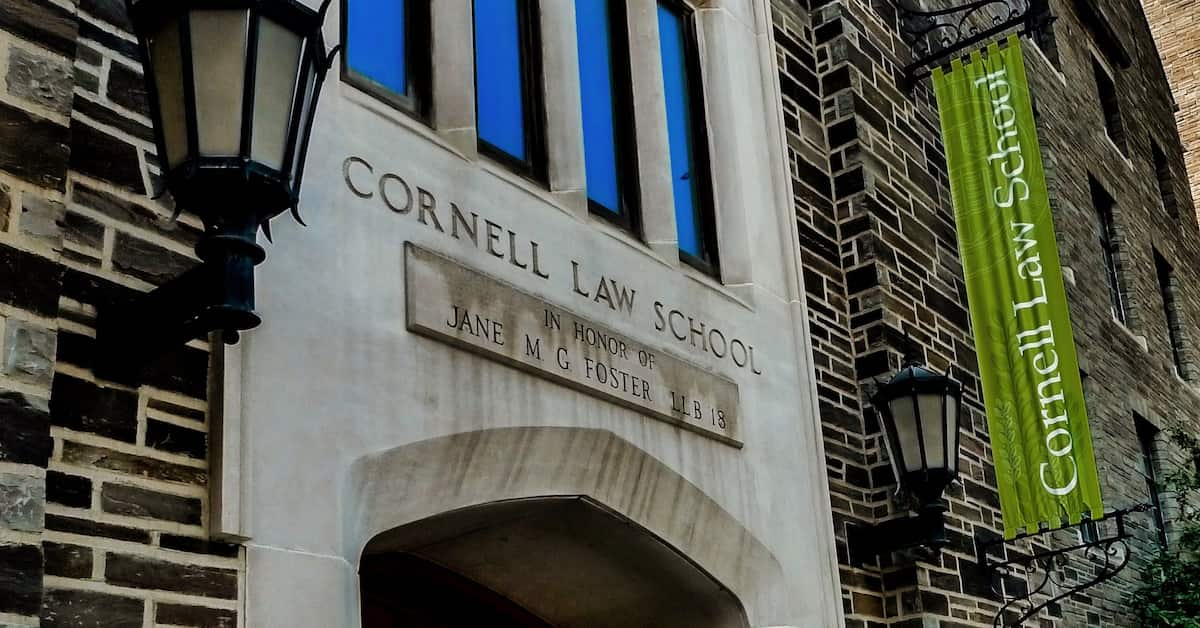
Cornell Law School, founded in 1887, is an Ivy League institution located in Ithaca, New York. Cornell Law is known for its rigorous academic programs, offering students an intimate learning environment with small class sizes. The school emphasizes the integration of legal theory with practical applications, preparing students for diverse careers in corporate law, litigation, and public interest law and maintaining a strong tradition of academic excellence. Cornell Law School offers a variety of degree programs, including the Juris Doctor (J.D.), Master of Laws (LL.M.), Doctor of Juridical Science (J.S.D.), and Master of Science in Legal Studies (M.S.L.S.). The J.D. program covers essential legal subjects like torts, contracts, and civil procedure. Cornell provides dual-degree options, such as J.D./M.B.A. and J.D./M.P.A., in collaboration with other Cornell departments, offering students interdisciplinary opportunities.
Cornell Law School remains highly selective, with an acceptance rate of 19%, reflecting its competitive admissions process. The class of 2026 had a median LSAT score of 172 and a median GPA of 3.9. Cornell Law’s admissions standards ensure that only highly qualified candidates are accepted, providing an intellectually stimulating environment for students aspiring to excel in the legal field. Cornell Law’s tuition for the 2024 academic year is approximately $77,593, with total attendance costs, including living expenses and fees, exceeding $104,309 annually. The school offers substantial financial aid, with about 88% of students receiving scholarships or grants. Cornell’s financial support helps make its prestigious legal education more accessible to qualified students from diverse socioeconomic backgrounds, contributing to its distinguished academic community.
Cornell was ranked 14th by U.S. News & World Report in 2024. The school is recognized for its strong placement in BigLaw firms, high Bar passage rates, and its focus on practical legal experience. Cornell Law continues to be one of the best New York law schools, offering a balanced approach to legal theory and real-world application. Cornell Law School provides a range of specialized courses in tort law, starting with the foundational Torts course. Advanced courses such as Products Liability and Advanced Torts offer deeper exploration into civil liability, personal injury, and negligence. The courses help students understand tort law comprehensively, preparing them for successful careers in litigation, public policy, and related legal fields.
Cornell Law School has several renowned professors specializing in tort law. Valerie Hans is recognized for her work on civil juries and personal injury cases, particularly mass torts. James Henderson focuses on product liability, negligence, and public policy’s intersection with tort law. Gregory Keating contributes to tort theory, emphasizing fairness and justice in tort law applications, giving students deep insights into key tort issues. Cornell Law School provides practical clinical opportunities in tort law through various programs. The Civil Litigation Clinic offers students hands-on experience with tort claims such as personal injury and professional negligence cases. The Prosecution and Defense Clinics allow students to engage in litigation practices addressing tort-related civil disputes. The clinics provide real-world experiences that enhance students’ practical legal skills in tort litigation.
Cornell Law School boasts a strong network of alumni with notable contributions to tort law. Myron C. Taylor, an influential lawyer and industrialist, impacted corporate and tort law development. William H. Webster, former FBI and CIA Director, dealt with tort liability within national security matters. Jane Foster, former General Counsel of the U.S. Department of Defense, handled significant government litigation involving tort law issues, providing inspiration and connections for students. Cornell Law School offers comprehensive courses in tort law, starting with the foundational Torts course. Advanced Torts provides a deeper exploration into key doctrines like dignitary and economic torts. Product liability focuses on legal responsibility for defective products, examining safety regulations and corporate accountability. The courses offer students a broad understanding of tort law, preparing them for careers in litigation and policy. Cornell Law graduates enjoy excellent employment outcomes, with 92.1% securing full-time positions within ten months of graduation. Several graduates work in top law firms specializing in tort litigation, corporate defense, and mass torts. The school’s clinical programs and dedicated faculty support contribute significantly to students’ successful public and private legal career paths.
12. Georgetown University Law Center
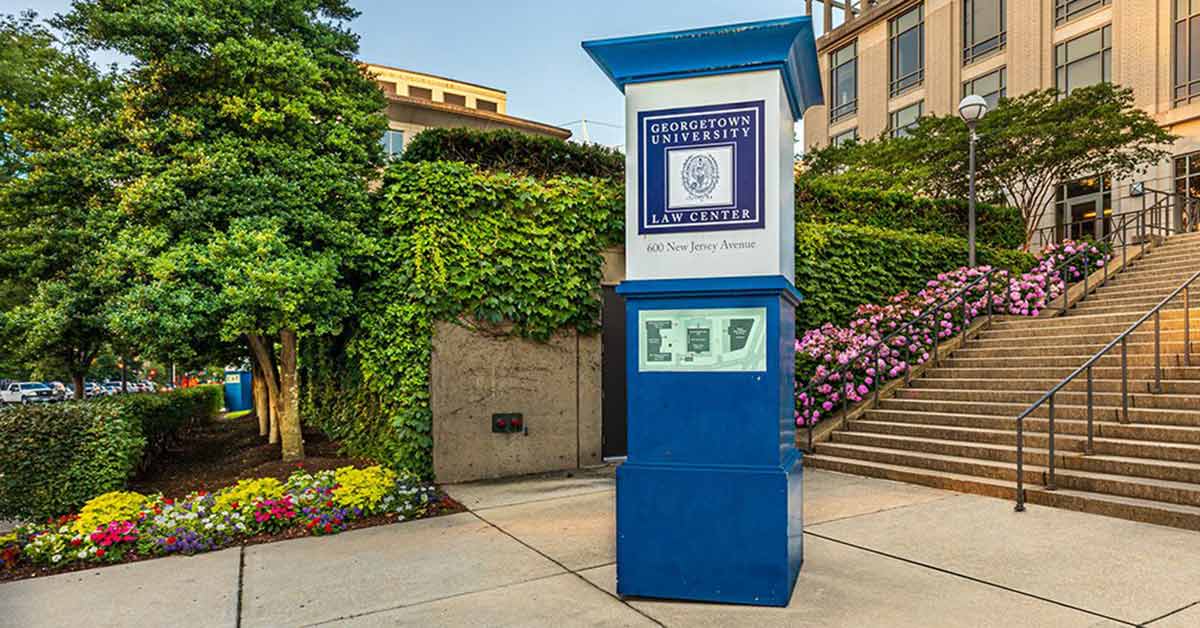
Georgetown University Law Center, referred to as Georgetown Law, was founded in 1870. The law center is located in Washington, D.C., and is renowned for its prominent standing in the legal education landscape. Georgetown Law offers unparalleled access to legal institutions, governmental bodies, and NGOs due to its strategic location near key federal agencies and courts. Georgetown Law provides an extensive range of programs, including the Juris Doctor (J.D.), Master of Laws (LL.M.), and Doctor of Juridical Science (S.J.D.). Students pursue joint degree programs like the J.D./M.B.A. or J.D./M.P.P. Georgetown Law offers evening and part-time programs catering to students with diverse needs and career aspirations within the legal field.
Georgetown University Law Center has a competitive acceptance rate of 19.57%, reflecting its selective admissions process. The median LSAT score for admitted students is 171, while the median GPA stands at 3.86. Georgetown Law remains one of the most applied-to law schools due to its academic excellence and prime location near significant legal and governmental institutions. Tuition for the full-time J.D. program at Georgetown Law for the 2024-2025 academic year is approximately $82,264. The total cost of attendance reaches $115,812 annually, including living expenses. Financial aid options, including merit-based and need-based scholarships, are available to support students. Georgetown Law offers loan repayment assistance programs for students pursuing public interest law careers.
Georgetown University Law Center is ranked 14th in U.S. News & World Report’s 2024 Best Law Schools. Georgetown Law holds the No. 1 position in Part-time Law and Clinical Training, 11th in Business/Corporate Law, and 6th in Health Care Law. The law school’s strategic location near federal institutions makes Georgetown Law a top choice for students interested in public policy, national security law, and transnational law. Georgetown Law integrates tort law into its foundational curriculum and offers specialized courses like Advanced Torts and Mass Torts. The Civil Litigation Clinic provides hands-on experience, allowing students to work on tort-related cases involving personal injury and malpractice. Georgetown Law’s tort law program emphasizes practical and theoretical understanding, preparing students for various tort litigation careers.
Georgetown University Law Center features distinguished faculty specializing in various aspects of tort law. Professor Heidi Li Feldman focuses on negligence, product liability, and tort law philosophy. David Vladeck, known for his public interest work, specializes in consumer protection and mass tort litigation. John M. Thomas brings expertise in health law, concentrating on the intersection of tort law with medical malpractice and negligence cases. Georgetown University Law Center provides students with hands-on experience in tort litigation through its Civil Litigation Clinic. Students handle cases involving personal injury, professional malpractice, and negligence. The Environmental Law and Justice Clinic addresses tort claims related to environmental harm. The clinics allow students to engage in large-scale tort litigation, giving them practical experience with complex regulatory and legal frameworks.
Georgetown University Law Center boasts an influential alumni network, with several graduates excelling in tort law. Deborah Epstein directs the Domestic Violence Clinic, focusing on tort law’s application in domestic violence cases. David Vladeck, a former FTC director, contributes significantly to consumer protection and mass torts. Michael K. Kellogg, a founding partner of a top litigation firm, has extensive experience in complex mass tort cases. Georgetown University Law Center offers a wide range of tort law courses, starting with a foundational course in Torts. Advanced courses, including product liability and Mass Torts, address complex liability issues in large-scale cases. Medical Malpractice focuses on tort claims in the healthcare industry. The courses ensure students gain a theoretical and practical understanding of tort law principles and applications. Georgetown University Law Center graduates are highly sought after, particularly in fields involving tort litigation. Georgetown Law graduates secure full-time employment at a rate of about 93% within ten months of graduation. Several graduates pursue careers in tort law, benefiting from the law center’s emphasis on experiential learning. The law school’s strategic location in Washington, D.C., provides access to major law firms, governmental agencies, and public interest organizations.
13. Stanford Law School
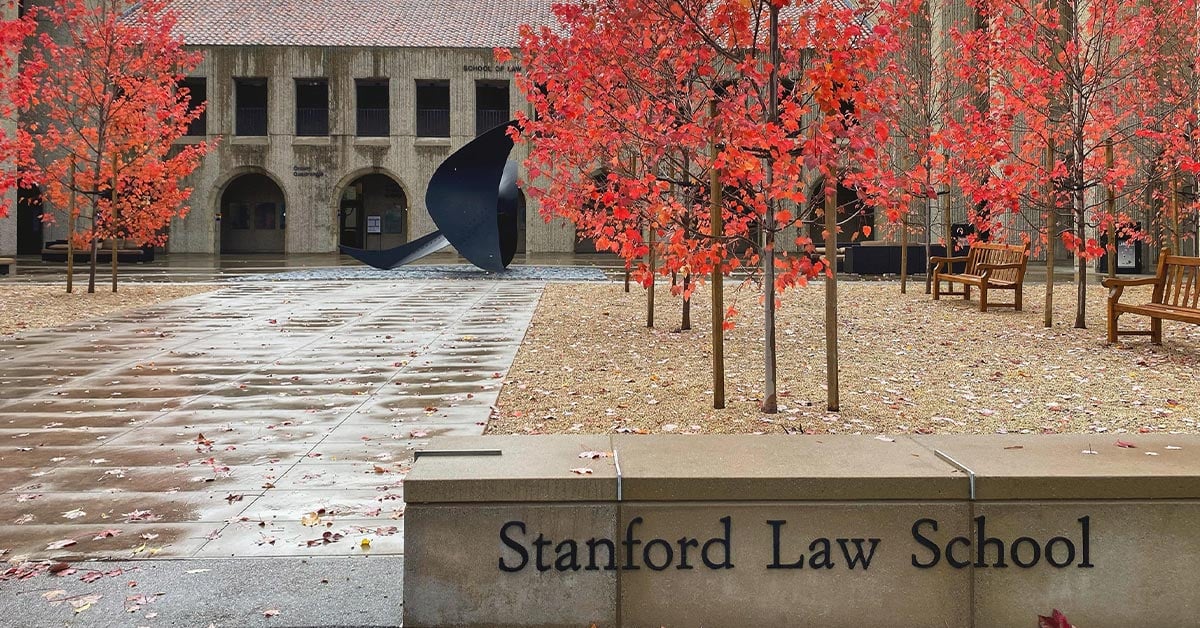
Stanford Law School, established in 1893, is one of the world’s most prestigious legal institutions. Stanford Law, situated in Palo Alto, California, provides access to Silicon Valley, creating a unique blend of law, technology, and entrepreneurship. The law school is known for its small class sizes, interdisciplinary approach, and robust clinical programs, providing students with diverse learning opportunities across legal fields. Stanford Law School offers several advanced degree programs, including the Juris Doctor (J.D.), Master of Laws (LL.M.), and Doctor of the Science of Law (J.S.D.). The J.D. program includes core first-year courses like torts, civil procedure, and contracts, followed by over 280 elective courses. The school’s interdisciplinary focus allows students to take courses across Stanford University’s business, engineering, and public policy schools.
Stanford Law School an acceptance rate of approximately 9%, reflecting its competitive admissions process. Admitted students hold a median LSAT score of 173 and a median GPA of 3.95. The school’s reputation, strong academic programs, and strategic location near Silicon Valley contribute to its high applicant volume and selective admissions criteria. Stanford Law School’s tuition for the 2024 academic year is $73,713, with the total cost of attendance exceeding $107,055 annually. Stanford Law provides generous financial aid, with over 58% of students receiving grants averaging $34,199.The law school’s financial aid program ensures access to students from diverse socioeconomic backgrounds despite the high cost.
Stanford Law School is ranked No. 1 (tie) in the U.S. News & World Report’s 2024 Best Law Schools. The law school holds top positions in specialty areas, including No. 1 in Business/Corporate Law and strong programs in intellectual property and public interest law. Stanford’s location in Silicon Valley enhances its reputation in technology and innovation law, making it a hub for students pursuing the fields. Stanford Law School integrates tort law into its core curriculum through foundational courses like Torts and advanced electives such as Products Liability and Advanced Torts. Students gain practical experience through clinics, including the Supreme Court Litigation Clinic, which addresses tort-related legal issues. The combination of theoretical courses and real-world practice ensures a comprehensive education in tort law at Stanford Law.
Stanford Law School features prominent faculty members known for their expertise in tort law. Nora Freeman Engstrom, a leading authority in mass torts and legal ethics, contributes significantly to the Restatement of Torts project. Robert L. Rabin, a scholar in accident law and legislative compensation schemes, co-edits a seminal tort law casebook. Michelle Mello specializes in healthcare-related tort law, particularly in medical malpractice and patient safety. Stanford Law School provides students with hands-on experience in tort law through various clinics. The Supreme Court Litigation Clinic handles tort-related cases involving personal injury and negligence, offering students practical courtroom experience. The Environmental Law Clinic addresses torts connected to environmental damage, providing exposure to litigation with regulatory and policy considerations. The clinics allow students to apply classroom knowledge to real-world cases.
Stanford Law School’s alumni network is extensive, with many contributing to the field of tort law. Pamela S. Karlan, an expert in constitutional torts, has handled numerous high-profile cases. Michelle Mello, known for her work on medical malpractice, continues to bridge tort law and public health. Robert Rabin’s guidance has shaped countless students’ academic and professional tort law careers. Stanford Law School offers a strong curriculum in tort law, starting with the mandatory first-year Torts course. The course covers key topics such as negligence, strict liability, and intentional torts. Advanced courses like product liability, Medical Malpractice, and Complex Litigation provide students with a deeper knowledge of specialized areas within tort law, preparing them for diverse legal careers involving complex tort cases. Stanford Law School graduates have strong employment prospects, with 86.2% securing full-time, long-term employment within ten months of graduation. Several graduates pursue prestigious positions in top law firms or judicial clerkships where tort law plays a key role. Tort litigation, corporate law, and public interest law are common career paths for graduates, reflecting Stanford’s emphasis on practical legal training and interdisciplinary learning opportunities.
14. University Of Michigan Law School
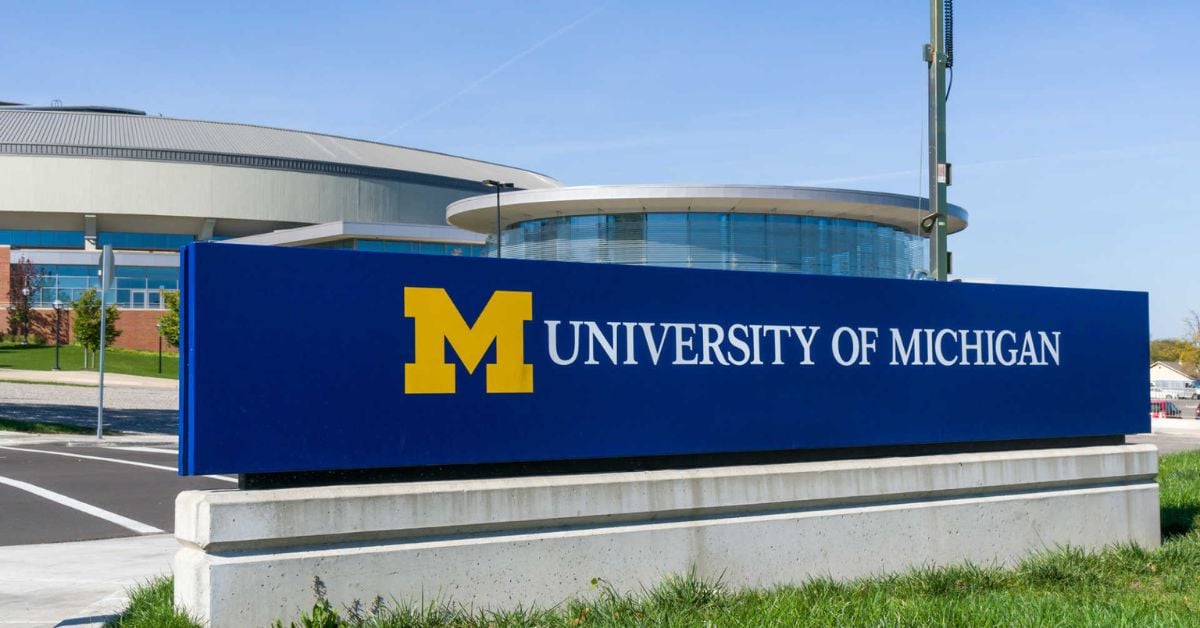
The University of Michigan Law School, founded in 1859, is one of the oldest and most prestigious law schools in the United States. The University of Michigan Law School, situated in Ann Arbor, offers students a rigorous academic environment combined with a vibrant student community. Michigan Law consistently ranks among the top law schools in the country, and it is known for its theoretical and practical legal education. The law school offers several degree programs, including the Juris Doctor (J.D.), Master of Laws (LL.M.), and Doctor of the Science of Law (S.J.D.). The J.D. program covers foundational courses in torts, contracts, and civil procedure in the first year. Students in later years select from over 280 electives. Michigan Law offers joint degrees like the J.D./MBA with the University of Michigan’s Ross School of Business.
The University of Michigan Law School maintains a highly selective admissions process, with an acceptance rate of approximately 18%. Successful applicants have a median LSAT score of 171 and a median GPA of 3.85. The competitive nature of the admissions process reflects the school’s strong reputation and appeal to students seeking top-tier legal education. The University of Michigan Law School’s tuition is approximately $69,584 for Michigan residents and $72,584 for non-residents for the 2024 academic year. The total cost of attendance, including living expenses, exceeds $104,000 annually. Financial aid options are available, including scholarships, fellowships, and need-based grants, ensuring that students from diverse backgrounds access a Michigan Law education.
The University of Michigan Law School is ranked 10th in U.S. News & World Report’s 2024 Best Law Schools. Michigan Law is known for its strong alumni network, high Bar passage rates, and excellent placement in BigLaw firms, excelling in various legal disciplines. The school is particularly recognized for its programs in public interest law, corporate law, and international law, as well as its clinical training opportunities. The University of Michigan Law School integrates tort law into its core curriculum, starting with a mandatory first-year Torts course. Advanced tort law courses, including product liability and Medical Malpractice, provide deeper insights into specific areas of tort litigation. Students gain practical experience through the Civil Litigation Clinic and Environmental Law Clinic, where tort claims are frequently handled, offering real-world legal exposure.
The University of Michigan Law School features distinguished faculty members with expertise in tort law. Sherman J. Clark, the Kirkland & Ellis Professor of Law, specializes in torts and evidence, exploring the societal impact of legal rules. Nicolas Cornell focuses on torts and contract law, contributing significantly to tort theory, particularly on morality and legal remedies. Christina B. Whitman has written extensively on civil rights and constitutional tort law. The University of Michigan Law School offers students practical experience in tort law through several clinical programs. The Civil-Criminal Litigation Clinic allows students to handle civil cases involving personal injury and negligence. The Environmental Law Clinic provides hands-on experience with tort claims related to environmental damages, offering students exposure to complex tort litigation and regulatory challenges in real-world cases.
The University of Michigan Law School boasts a strong network of alumni actively engaged in tort law. David W. Rivkin, a prominent figure in international arbitration and mass tort litigation, is one notable graduate. Robert Hirshon, a past president of the American Bar Association, has handled high-profile tort cases. Myron C. Taylor, a significant figure in early 20th-century corporate and tort law, graduated from Michigan Law. The University of Michigan Law School offers a wide range of courses in tort law. The foundational Torts course, required for first-year students, covers negligence, strict liability, and intentional torts. Advanced Torts focuses on complex issues like defamation, invasion of privacy, and economic torts. The Products Liability course addresses liability concerns related to defective products and emphasizes consumer protection, preparing students for specialized litigation. The University of Michigan Law School consistently boasts strong employment outcomes, with 95.4% of graduates securing long-term, full-time legal positions in 2023. Michigan Law graduates find roles in prestigious law firms, particularly in litigation and tort-related practices. The school’s robust academic programs and clinical training contribute to a 98% overall employment rate, with many students entering top law firms and public interest roles.
15. Vanderbilt University Law School
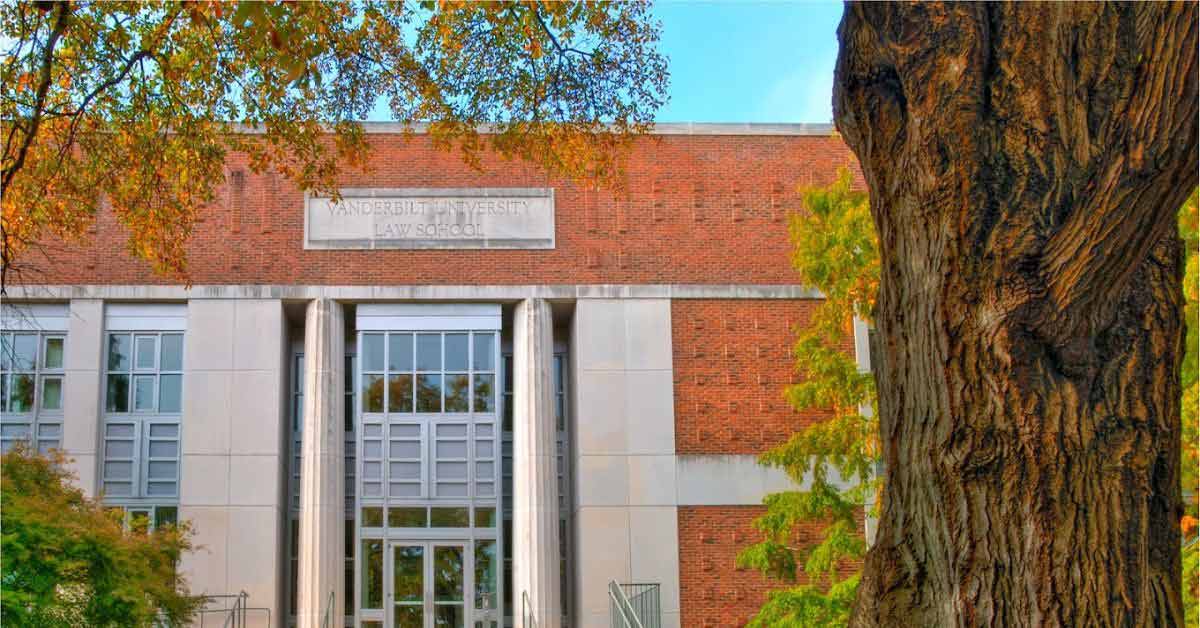
Vanderbilt University Law School, founded in 1874, is one of the leading law schools in the United States. Vanderbilt Law, situated in Nashville, Tennessee, is renowned for offering a rigorous academic program within a collegial and supportive environment. The law school emphasizes legal theory, practical skills, and interdisciplinary studies, providing students with a comprehensive legal education. Vanderbilt University Law School offers a variety of degree programs, including the Juris Doctor (J.D.), Master of Laws (LL.M.), and Ph.D. in Law and Economics. The J.D. program includes core courses in torts, contracts, and constitutional law alongside a wide range of electives. Students pursue dual degrees, such as the J.D./M.B.A. or J.D./M.D., in collaboration with other departments at Vanderbilt University.
Vanderbilt University Law School maintains a highly selective admissions process, with an acceptance rate of 16.8%. Admitted students possess a median LSAT score of 170 and a median GPA of 3.89. The competitive admissions process reflects the high academic standards and quality of students entering law school, making it a top choice for aspiring legal professionals. Tuition at Vanderbilt University Law School is approximately $75,440 for the 2024-2025 academic year. The total cost of attendance, including living expenses, exceeds $100,000 annually. More than 84% of students receive scholarships or grants, with the average grant amount reaching $33,000. Financial aid ensures accessibility to a diverse range of students while helping manage the overall cost of legal education.
Vanderbilt University Law School is ranked 19th in U.S. News & World Report’s 2024 Best Law Schools. The specialty rankings include 11th in Business/Corporate Law and 46th in Clinical Training. Vanderbilt Law consistently ranks among the best Tennessee law schools, with a strong emphasis on corporate law, litigation, and public interest law. The law school is noted for high student satisfaction and its supportive faculty. Vanderbilt University Law School integrates tort law into its core curriculum, with a foundational Torts course in the first year. Advanced courses such as Products Liability and Medical Malpractice provide students with in-depth knowledge of tort law. The Civil Practice Clinic offers students practical experience, allowing them to engage in tort-related litigation, including personal injury and negligence cases, and providing real-world legal training.
Vanderbilt University Law School features distinguished faculty members known for their expertise in tort law. Brian T. Fitzpatrick specializes in class action litigation and tort reform, with a focus on mass torts. W. Kip Viscusi’s research covers law and economics, emphasizing product liability and risk regulation. Rebecca Allensworth focuses on the intersection of tort law, professional regulation, and public health, contributing significantly to the academic landscape. Vanderbilt University Law School provides students with clinical opportunities to gain hands-on experience in tort law. The Civil Practice Clinic allows students to work on real cases involving tort claims, such as personal injury, negligence, and malpractice. Students, under faculty supervision, represent clients in litigation, ensuring practical exposure to tort law in a controlled learning environment that prepares them for professional practice.
Vanderbilt University Law School’s extensive alumni network includes prominent figures who have significantly contributed to tort law. Jim Neal, a renowned defense attorney, worked on high-profile tort cases, including the Watergate prosecutions. Jody Wagner is experienced in finance and law and has dealt with tort-related government litigation. Paul Ney, a former Deputy General Counsel for the Navy, handled tort claims against the military, further enhancing the alumni network’s influence. Vanderbilt University Law School offers a strong curriculum in tort law, starting with the foundational Torts course. First-year students study negligence, liability, and foundational tort law concepts. Advanced courses like Products Liability, Medical Malpractice, and Mass Torts provide students with opportunities to specialize in specific areas of tort law. The courses prepare students for careers in tort litigation and complex legal matters. Vanderbilt University Law School graduates consistently achieve strong employment outcomes, with 92.1% securing long-term, full-time positions within ten months of graduation. Several graduates enter prestigious law firms or clerkship positions where tort law plays a critical role. Vanderbilt’s robust academic programs and clinical training prepare students for successful litigation and tort-related legal practice careers, reflecting the school’s emphasis on practical legal education.
How To Choose The Best Tort Law School?
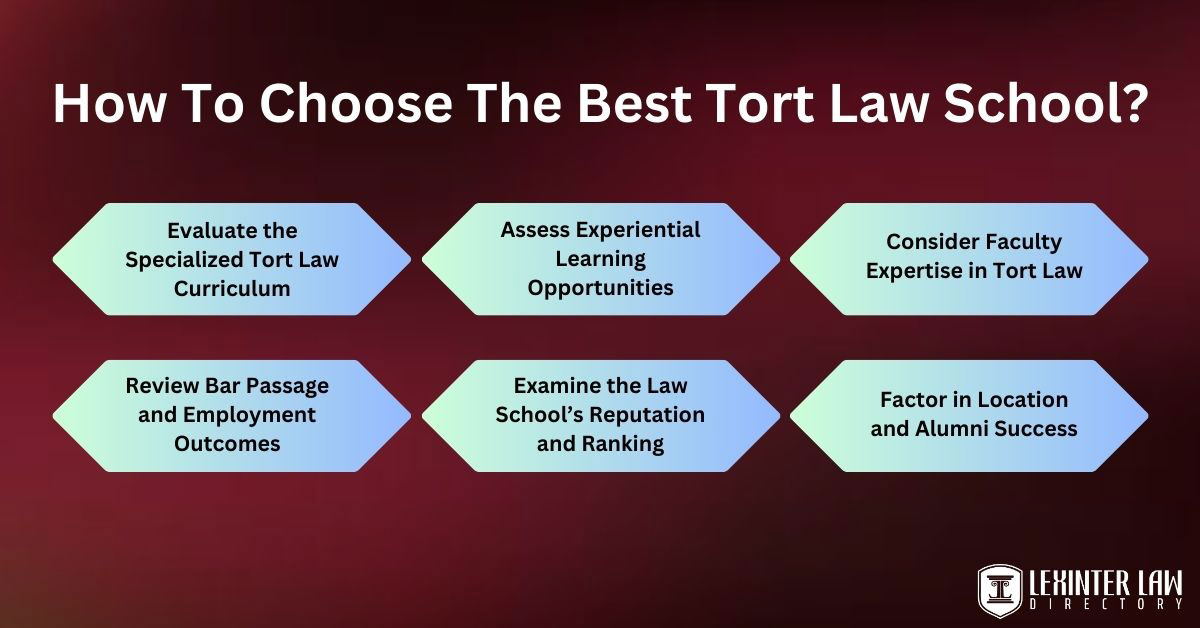
To choose the best tort law school, follow the 6 steps listed below.
- Evaluate the Specialized Tort Law Curriculum. Focus on law schools offering a robust foundational program in tort law. Investigate whether advanced courses, such as product liability or mass tort litigation, are available beyond the first-year curriculum. Schools like Harvard and Columbia emphasize the areas, making them ideal for a deeper understanding of tort law.
- Assess Experiential Learning Opportunities. Look for law schools providing practical experience through clinics, externships, and moot court programs. Practical opportunities allow students to apply theoretical knowledge in real-world tort law scenarios. The practical nature of tort law makes gaining hands-on experience essential, enhancing legal skills and career readiness.
- Consider Faculty Expertise in Tort Law. Focus on law schools with professors specializing in tort law who possess strong academic or practical backgrounds. Seek faculty members who engage in tort reform or significant tort litigation cases. Faculty expertise ensures that students receive high-quality instruction in specialized areas of tort law, providing an edge in legal understanding.
- Review Bar Passage and Employment Outcomes. Research law schools with strong Bar passage rates and employment outcomes, especially in areas like personal injury law. Law schools with high Bar passage rates and a record of placing graduates in tort law fields, such as medical malpractice or product liability, indicate better preparation for legal careers in tort law.
- Examine the Law School’s Reputation and Ranking. Focus on law schools with strong reputations in civil litigation and established tort law programs. Schools ranked highly by the ABA or known for civil law curricula provide a competitive advantage. A law school’s reputation impacts networking, career opportunities, and access to high-profile tort law cases.
- Factor in Location and Alumni Success. Choose a law school located in a jurisdiction where practicing tort law is desirable. Local regulations and networking opportunities significantly influence career prospects. Consider alumni success in the field. Alumni who have succeeded in tort law offer valuable networking opportunities, mentorship, and guidance for future career paths.
What Is Tort Law?
Tort law is a critical branch of civil law focused on providing remedies to individuals harmed by the wrongful actions of others. Tort law aims to restore injured parties to the position they were in before the harm occurred through monetary compensation. The fundamental principle of tort law is to address wrongs between individuals, setting it apart from criminal law, which deals with offenses against the state. Tort law encompasses various categories, including intentional torts, negligent torts, and strict liability torts, each covering different forms of harm and responsibility. Individuals interested in becoming tort lawyers pursue a tort law degree through specialized tort law programs. The tort law programs equip students with a thorough understanding of civil law, focusing on legal principles related to harm, compensation, and liability.
Tort law covers a wide range of issues, including personal injuries, property damage, emotional distress, and privacy violations. Legal claims under tort law seek compensation for medical expenses, lost wages, and pain and suffering resulting from injury. Property damage claims are included, providing financial compensation for damage to personal or real property. Tort law addresses severe wrongdoing, allowing courts to impose punitive damages to punish the defendant and prevent future misconduct. The scope of tort law ensures that injured parties seek justice and financial recovery.
What Is The Main Goal Of Tort Law?
The main goal of tort law is to provide remedies for individuals wronged by another party’s actions. Tort law seeks to restore the injured party to the position they were in before the harm occurred, primarily through monetary compensation. The principle of corrective justice guides tort law, focusing on addressing private wrongs rather than punishing the wrongdoer. The goal distinguishes tort law from criminal law, which addresses offenses against the state and focuses on punishment.
The purpose of tort law centers around compensation, deterrence, and appeasement. Tort law ensures that injured parties receive compensation for physical, emotional, or financial harm caused by another’s wrongful actions. Compensation covers medical expenses, lost wages, pain and suffering, and property damage. Tort law deters negligent or reckless behavior by holding individuals or entities accountable for harm. Punitive damages are awarded to penalize egregious conduct and prevent future wrongdoing in severe cases. Tort law encourages peaceful dispute resolution by providing a legal framework for injured parties to seek redress and maintain social order.
Tort law functions by establishing that a duty of care existed and was breached, leading to harm. The plaintiff, or injured party, must prove four essential elements: duty, breach of duty, causation, and damages. The defendant must have had a legal obligation to act in a specific way and failed to meet that obligation, causing the plaintiff’s injuries. The plaintiff must demonstrate that actual harm or loss occurred as a result of the breach. Courts award compensatory damages, and in cases of intentional or reckless conduct, punitive damages are imposed to penalize and deter further misconduct.
What Is The Benefit Of Tort Law?
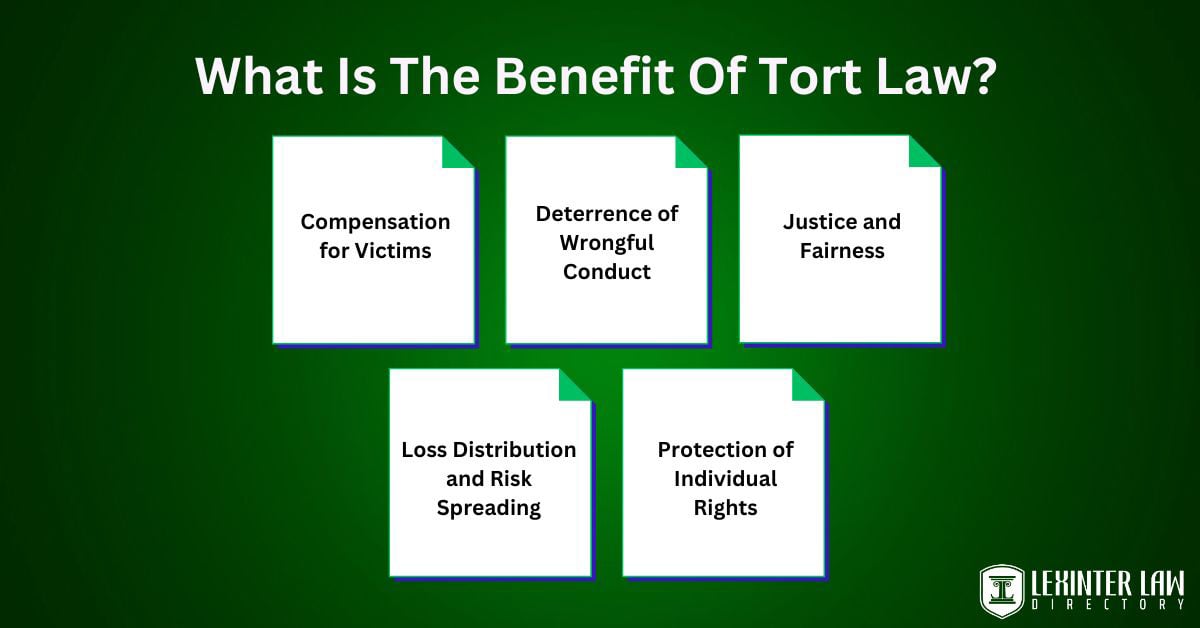
The 5 benefits of tort law are listed below.
- Compensation for Victims: Tort law provides victims with compensation for losses suffered, including medical expenses, lost wages, and emotional distress. Tort law helps victims recover from the harm caused by wrongful actions by ensuring financial restitution. The law promotes restorative justice by addressing the personal losses incurred by individuals due to another party’s negligence or wrongdoing.
- Deterrence of Wrongful Conduct: Tort law serves as a deterrent by holding individuals or entities accountable for their negligent or intentional actions. Tort law prevents similar conduct by imposing liability and punitive damages on wrongdoers. The enforcement of consequences for harmful actions in tort law discourages others from engaging in behavior that causes harm and promotes responsibility in various activities.
- Justice and Fairness: Tort law emphasizes justice by allowing individuals to seek redress for wrongs done to them outside the criminal law. Tort law ensures fairness by addressing private wrongs and providing legal remedies for individuals harmed by others. The legal process in tort law ensures that victims of wrongful conduct have a pathway to receive just compensation for the harm experienced.
- Loss Distribution and Risk Spreading: Tort law spreads the financial burden of harm across society, preventing the injured party from bearing the full cost. Tort law results in companies, such as manufacturers, distributing costs through increased product prices, allowing consumers to share the risk. The distribution of losses in tort law creates an economic balance that relieves individual victims from the financial strain caused by wrongful conduct.
- Protection of Individual Rights: Tort law protects personal and property rights by providing remedies when individuals suffer harm from violations such as defamation or trespassing. Tort law allows individuals to seek injunctions and compensatory damages to defend against rights violations. The law serves as a crucial mechanism for maintaining individual rights in personal and business contexts, offering protection against unjust actions.
What Is The Best Major For Tort Law?
Political science is the best major for tort law. The major offers a comprehensive understanding of governmental structures, legal processes, and public policy, which are all critical to tort law. Tort law deals with civil wrongs, personal injuries, and legal liabilities, requiring a strong foundation in understanding how laws are developed and applied. Political science provides a broad overview of legal principles, justice, and individual rights, which are essential to the practice of tort law.
Political science helps students develop critical thinking and analytical skills necessary for evaluating legal arguments and interpreting case law. The curriculum includes courses on constitutional law, civil rights, and public policy. The courses offer insights into how laws are created, interpreted, and applied, particularly in tort cases involving government regulations or personal rights. The study of tort law involves complex statutes and precedents, which political science majors are well-equipped to navigate. The major emphasizes the balance between public and private interests, helping students understand the implications of legal decisions on society. Political science encourages research and writing skills, which are crucial for preparing cases and drafting legal documents for tort law practice. Political science gives students a detailed perspective on how legislative and judicial processes interact, a key element of tort law. Navigating legal liabilities and securing compensation for clients in tort law involves interpreting legislative statutes and judicial rulings. Political science’s emphasis on law, governance, and societal impacts makes it the optimal choice for individuals aiming to specialize in tort law. The major provides the theoretical knowledge and practical skills necessary for success in the field.
How To Become An Tort Lawyer?
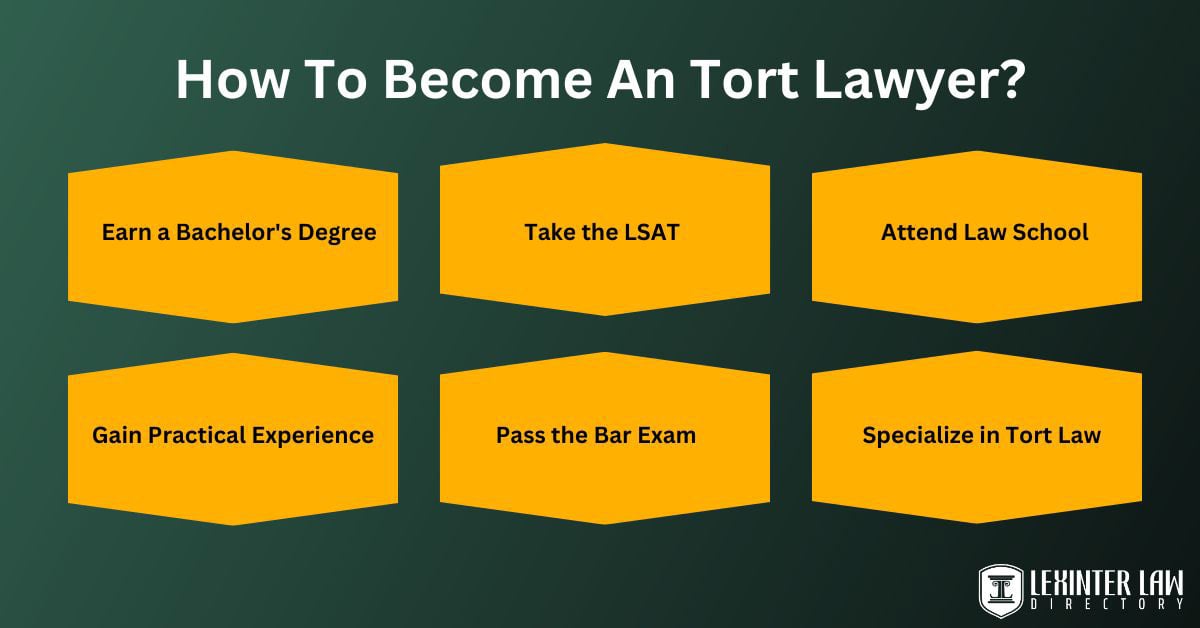
To become a tort lawyer, follow the 6 steps listed below.
- Earn a Bachelor’s Degree. Start by completing an undergraduate degree, ideally in a major like Political Science. Political science provides a comprehensive understanding of legal systems, governmental structures, and public policies. The knowledge gained from studying political science helps develop critical thinking, communication, and analytical skills essential for law school. Building the foundation is crucial for future success in law school and a tort law career.
- Take the LSAT. Prepare for the Law School Admission Test (LSAT), a requirement for admission to most law schools. The LSAT evaluates essential skills such as reading comprehension, logical reasoning, and analytical writing. Critical thinking and analysis skills are essential for understanding tort law principles. A high LSAT score increases the chances of acceptance into a reputable law school and advances career prospects.
- Attend Law School. Enroll in law school and complete a Juris Doctor (JD) degree, with a focus on tort law, civil procedure, and evidence courses. Pursuing a tort law degree requires taking specialized electives like personal injury, medical malpractice, and product liability. Developing in-depth knowledge is essential for a career in tort law, laying the groundwork for future specialization and expertise.
- Gain Practical Experience. Participate in internships, externships, or clinical programs during law school to gain practical, hands-on experience. Working on tort law cases through litigation, client interaction, and courtroom exposure builds critical skills and knowledge. Practical experience is essential for individuals looking to become a tort lawyer, allowing aspiring lawyers to apply theoretical concepts in real-world scenarios, making them well-prepared for the challenges of professional practice.
- Pass the Bar Exam. Earning a law degree followed by passing the Bar exam in the chosen state of practice is essential. The Bar exam tests knowledge of general legal principles, including tort law, which are necessary for practicing as a licensed attorney. The successful completion of the exam qualifies an individual to represent clients in court, advancing their legal career.
- Specialize in Tort Law. Specialization in tort law begins after obtaining a law license by joining a law firm focused on tort cases. Concentrating on specific areas like personal injury, medical malpractice, or product liability is crucial for career development. Continuous learning and networking help build a strong reputation, gain expertise, and achieve long-term success in the field.
How Long Would It Take To Study Tort Law?
It would take 7 years to study tort law and become a licensed attorney, including additional specialized options. The process begins with a 4-year undergraduate degree, required before entering law school. Law school takes 3 years, with tort law introduced during the first year as part of the core curriculum. Passing the Bar exam is essential after completing law school, and 3 to 6 months of preparation are needed. Individuals pursuing further specialization in tort law consider an LLM (Master of Laws), which takes an additional year, offering advanced knowledge in specific areas of tort law. Gaining practical experience through internships or clerkships enhances expertise without significantly extending the timeline.
The duration and timeline of tort law study are structured within a Juris Doctor (JD) program in the U.S., which spans 7 years of education. The foundational introduction to tort law occurs in the first year of law school, alongside core subjects like contracts and civil procedure. Students build proficiency through electives and internships that provide practical experience in tort law. Passing the Bar exam, which includes tort law sections, is essential for practicing law and requires months of dedicated preparation. Specialization continues throughout a lawyer’s career through clerkships, further education, or continuing legal education programs. The entire journey, from undergraduate education to becoming proficient in tort law, emphasizes academic study and practical application.
Is Tort Law Difficult?
Yes, tort law is considered difficult due to its intricate nature and wide range of topics. Tort law encompasses various civil wrongs such as negligence, strict liability, assault, battery, and defamation, each requiring an in-depth understanding of legal principles. Students must master abstract concepts like “duty of care” and the balancing act between compensating victims and deterring harmful conduct. Grasping the factual and legal aspects of real-world cases is essential, which adds to the complexity of the subject. The need for a deep understanding of numerous legal doctrines adds to the challenge of mastering tort law.
Tort law demands the application of legal theories to diverse scenarios, which is particularly challenging. The negligence doctrine, a cornerstone of tort law, requires students to analyze duty, breach, causation, and damages. Each of the elements involves nuanced legal standards that must be carefully understood. Areas like product liability present highly detailed factual and legal issues, such as a manufacturer’s duty to warn consumers about foreseeable risks. The challenges of tort law do not deter many students, who find it engaging due to its practical, real-world applications.
What Can You Expect From A Career As An Tort Lawyer?
You can expect diverse salaries, significant perks, and remarkable career advancement through networking and continuous learning from a career as a tort lawyer. Tort lawyers handle civil cases involving personal injury, medical malpractice, and product liability, requiring them to gather evidence, negotiate settlements, and represent clients in court. The profession demands extensive legal research, strategic planning, and effective client communication. Tort lawyers advocate for victims seeking compensation and defend corporations facing liability claims. Career advancement depends on building a strong reputation, developing expertise in specific areas, and continuously staying updated on changes in laws and regulations.
The financial rewards for tort lawyers vary, with annual earnings ranging from $80,000 to $150,000, depending on specialization and location. The more experienced tort lawyers or individuals handling complex cases in large markets earn significantly higher salaries. The career offers stability and growth potential, especially for individuals who network effectively and engage in continuous professional development. Tort lawyers find satisfaction in securing justice for clients and contributing to public safety by holding wrongdoers accountable. Several tort lawyers view the profession as financially rewarding and personally fulfilling, as their work leads to real societal impact. Career growth for tort lawyers largely depends on building a strong professional network, gaining specialized expertise, and continuously learning. Advancing in the field involves handling more complex, high-stakes cases, which lead to increased reputation and financial rewards. Tort lawyers progress by joining larger firms, becoming partners, or even starting their own practice.
How Do Tort Lawyers Earn?
Tort lawyers primarily earn income through various fee structures, including contingency fees, hourly rates, retainers, and flat fees. Tort lawyers charge clients an hourly rate, which varies depending on experience and the complexity of the case. Junior attorneys charge between $150 and $350 per hour, while senior attorneys charge $400 to $1,000 or more. Contingency fees are commonly used in personal injury and tort cases, where the lawyer receives a percentage of the client’s settlement or verdict. The percentage generally ranges from 20% to 40%, allowing clients to access legal services without upfront payment. Entry-level tort lawyers earn between $50,000 and $80,000 annually, while experienced lawyers earn from $80,000 to $150,000. Major settlements or high-demand areas push earnings to $200,000 or more annually.
Additional factors influencing tort lawyers’ earnings include experience, specialization, geographic location, firm size, and case outcomes. Lawyers with significant experience or expertise in complex tort cases command higher fees. Tort lawyers working in larger firms or high-cost urban areas tend to earn more compared to individuals in smaller practices. Client base and reputation play critical roles, as successful lawyers with strong track records negotiate higher fees. Tort lawyers supplement client fees by publishing legal articles, speaking at seminars, or teaching law schools, enhancing earnings and professional standing.
Where Do Tort Lawyers Work?
Tort lawyers primarily work in law firms, government agencies, and corporate legal departments. Several tort lawyers, particularly individuals specializing in personal injury law, operate in private practice or plaintiff-focused law firms. The law firms handle cases involving accidents, negligence, and medical malpractice. Law firms focusing on tort law deal with personal injury, product liability, or medical malpractice, representing clients who another party’s actions have harmed. Lawyers in such settings frequently work on a contingency fee basis, meaning compensation is tied to successful case outcomes.
Tort lawyers find employment with insurance companies or corporate legal departments, where the focus shifts to defense litigation. The lawyers, in their roles, represent businesses or entities being sued for damages related to accidents or liability claims. Tort lawyers working in corporate or insurance environments handle cases where businesses or insurers are defending against claims of negligence or harm. Several tort lawyers work in government agencies, managing cases involving public liability, environmental torts, or large-scale tort litigation. Work environments for tort lawyers involve a combination of negotiation and courtroom litigation. A significant portion of time is spent preparing cases, negotiating settlements, and representing clients during trials when necessary. Tort lawyers specialize in class-action lawsuits or mass tort cases, representing large groups of individuals against corporations or entities accused of causing widespread harm. The work setting and nature of cases handled by tort lawyers vary based on specialization and the type of clients they represent.
Are Tort Lawyers Highly Paid?
Yes, tort lawyers are highly paid, particularly individuals specializing in personal injury and trial law. The lawyer’s average salary ranges from $80,000 to $150,000 annually, depending on various factors. Tort lawyers work on a contingency fee basis, earning a percentage of settlements or damages. A successful tort lawyer makes substantial income, especially in large or high-profile cases. Entry-level tort lawyers earn between $50,000 and $80,000 annually, while experienced tort lawyers earn from $80,000 to $150,000. Earnings reach $200,000 or more annually in high-demand areas or for individuals handling major settlements.
The salary of tort lawyers varies due to several factors, including location, experience, and the types of cases handled. Lawyers in major cities or prestigious firms earn more than individuals in smaller markets. Personal injury and medical malpractice cases involving large settlements significantly increase a tort lawyer’s income. Experience and a track record of success allow tort lawyers to command higher fees and attract more lucrative cases, further boosting earnings. Factors like case complexity and jurisdiction impact tort lawyers’ earning potential.
How To Find Good Tort Lawyers Near Me With Lexinter?
To find good tort lawyers near me with Lexinter, begin by accessing the Lexinter Law Directory website. The platform offers an intuitive search bar where users enter their location, such as city or state, to find local tort lawyers. Lexinter allows filtering results based on specific legal categories, including tort law, to ensure accurate and relevant listings. Each premium listing includes comprehensive details like contact information, attorney credentials, and practice areas. Lexinter’s integration with Google My Business allows clients to easily verify a lawyer’s reputation and qualifications through accessible reviews and ratings.
Lexinter provides the ability to directly schedule consultations with tort lawyers through the directory, streamlining the process for users. The platform helps individuals connect with attorneys specializing in personal injury, medical malpractice, or product liability cases. Clients confidently find the most qualified attorney for their specific legal needs with the option to filter lawyers by practice area. Lexinter provides clients access to experienced and reputable tort lawyers who efficiently handle their claims while offering professional representation. The platform simplifies the entire search process, making it user-friendly and effective.
Which Country Has The Best Tort Law?
The United States has the best tort law system for plaintiffs seeking financial compensation. The U.S. system offers a plaintiff-friendly environment, especially with the possibility of punitive damages and class actions, which provide significant financial incentives. The contingency fee model allows individuals to pursue claims without upfront costs, increasing access to legal representation. Juries award large, sometimes unpredictable sums, particularly in cases involving emotional distress or product liability. Critics argue that it encourages excessive litigation; however, the U.S. remains the most financially rewarding jurisdiction for plaintiffs seeking compensation for harm, making it highly attractive for individuals pursuing large settlements.
European countries like Germany and France offer more restrained tort law systems that prioritize fairness over financial compensation. Germany’s system focuses solely on compensatory damages, aligning awards with the actual harm suffered and avoiding punitive elements that inflate settlements. France’s codified civil law framework creates predictability in case outcomes, limiting the incentives for large financial rewards. The systems reduce the chance of excessive litigation and large payouts by restricting financial motivations for plaintiffs and attorneys. The U.S. offers the highest financial rewards, yet many consider European systems to be more balanced and focused on equitable outcomes over financial gain.

